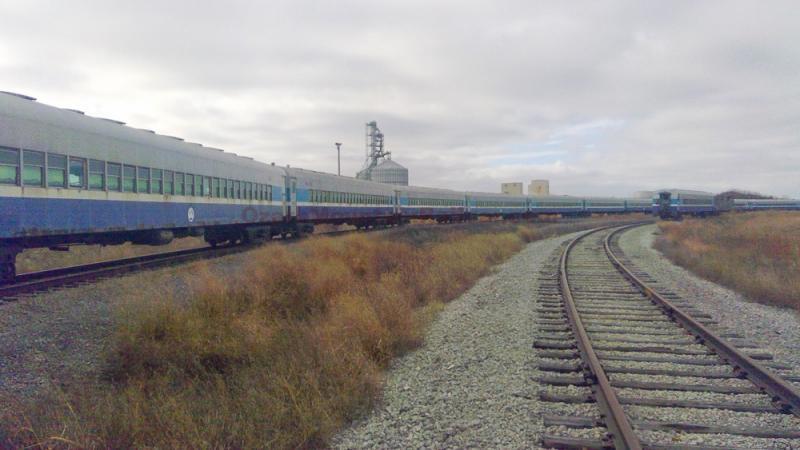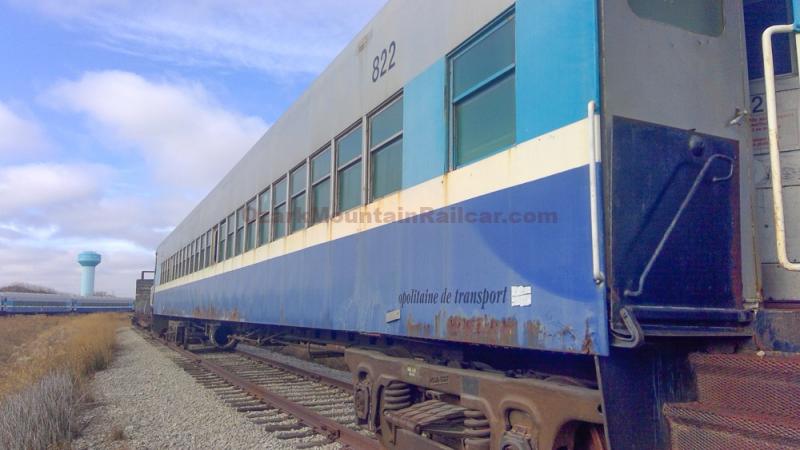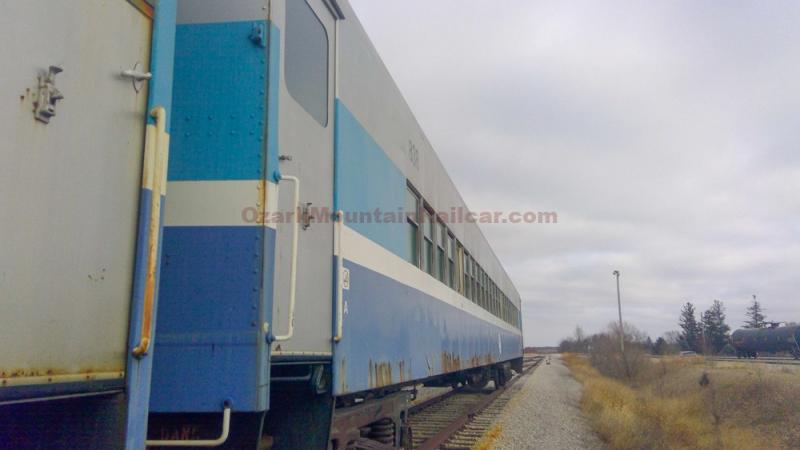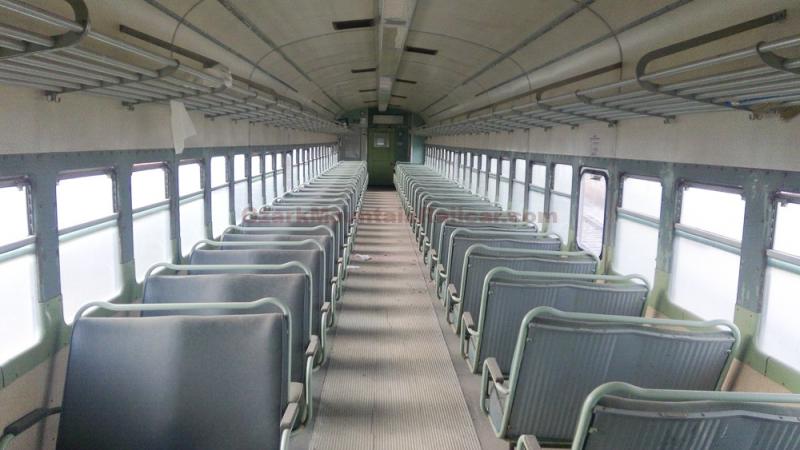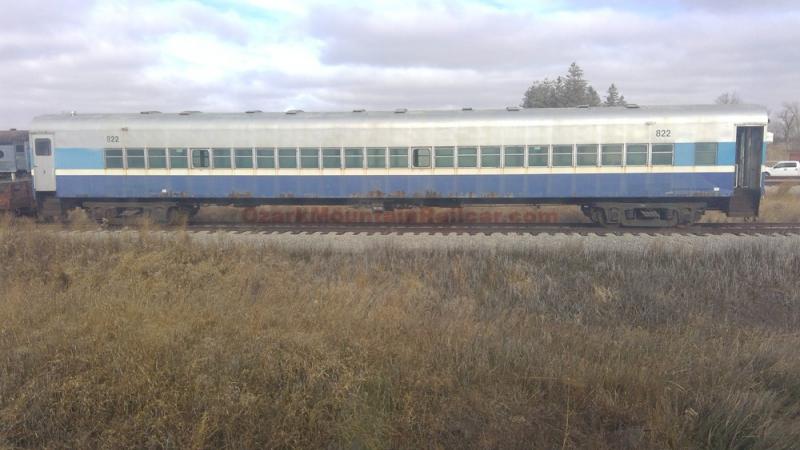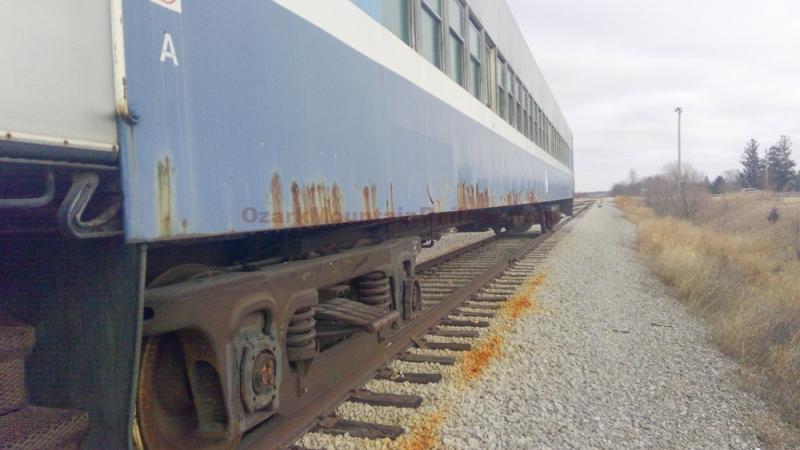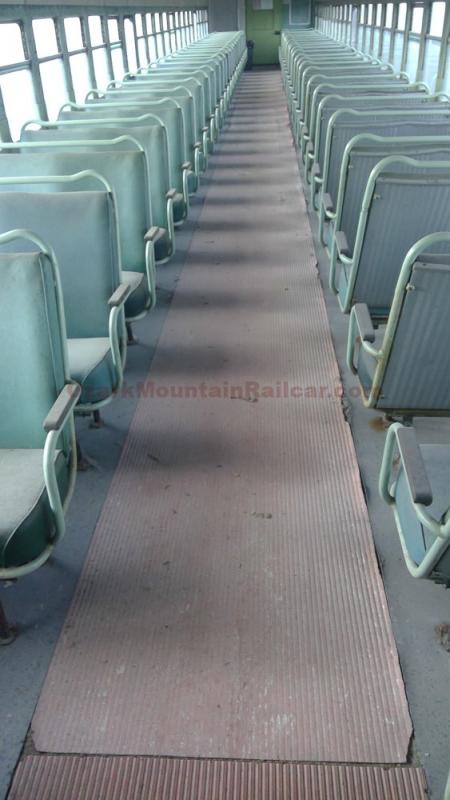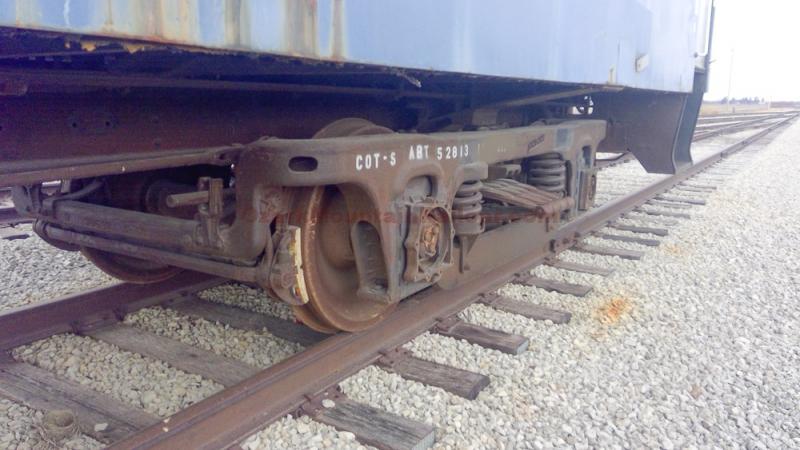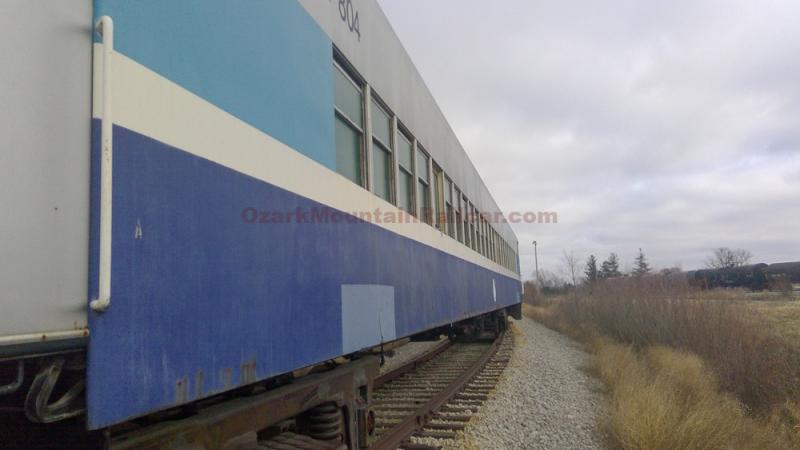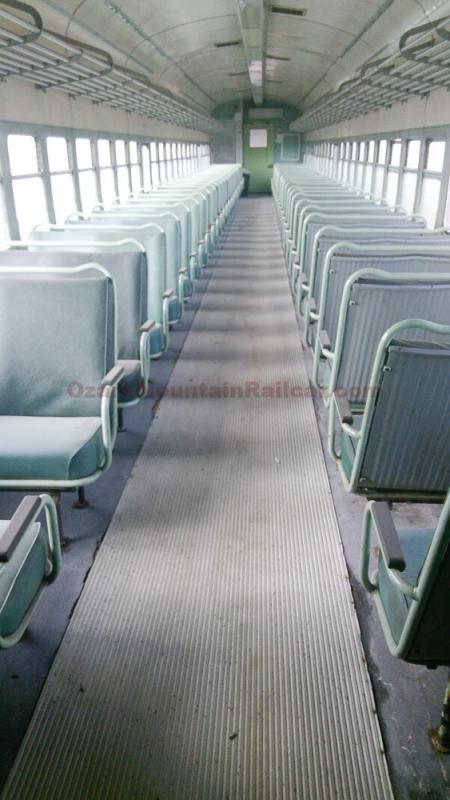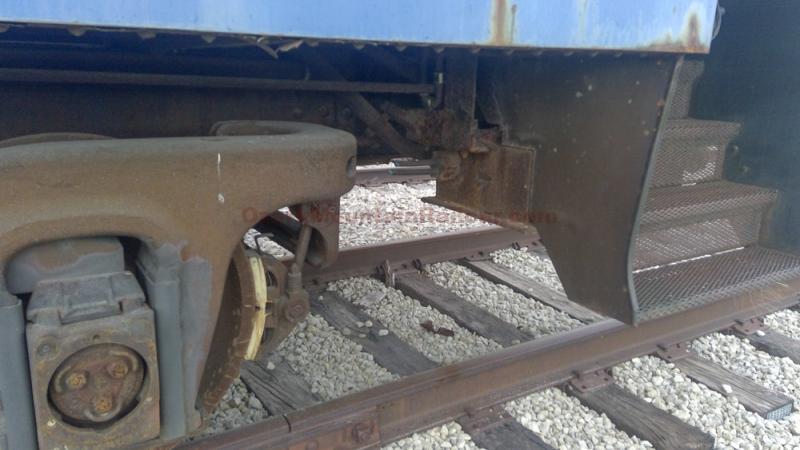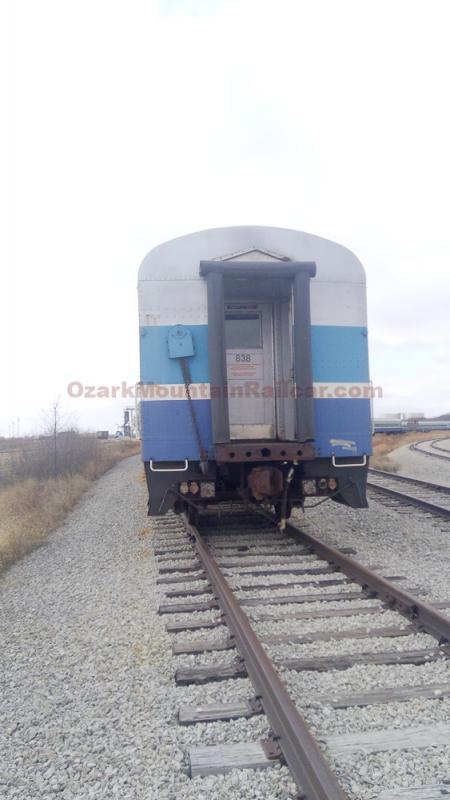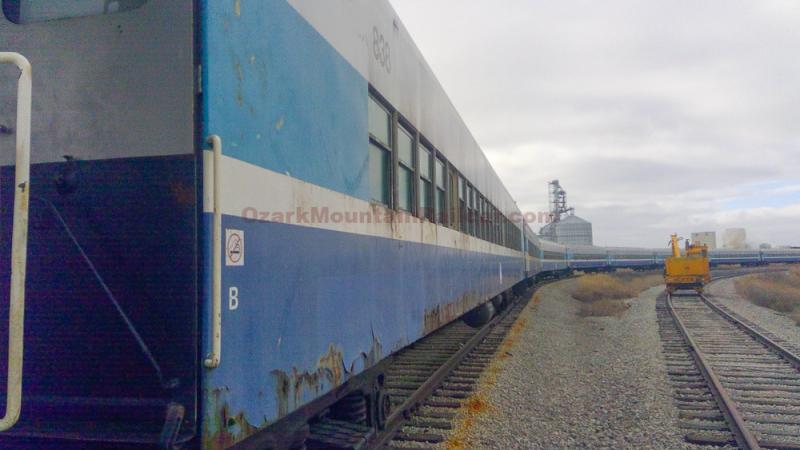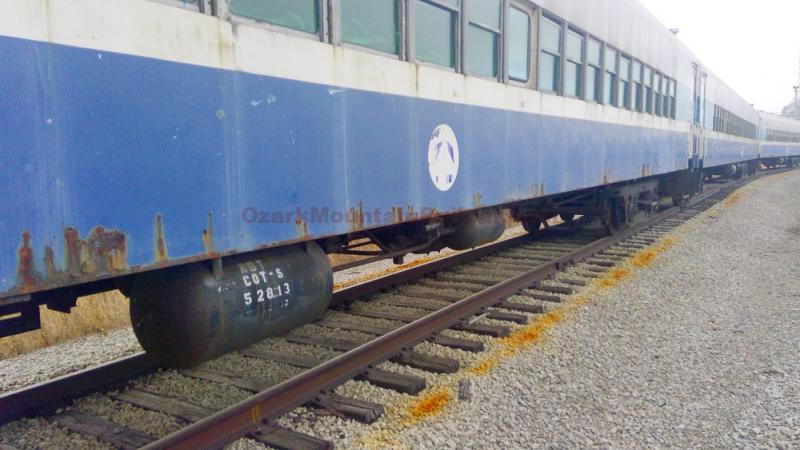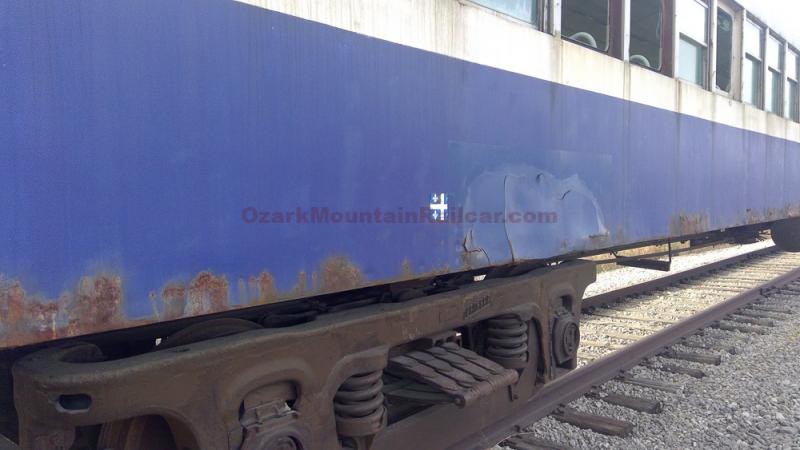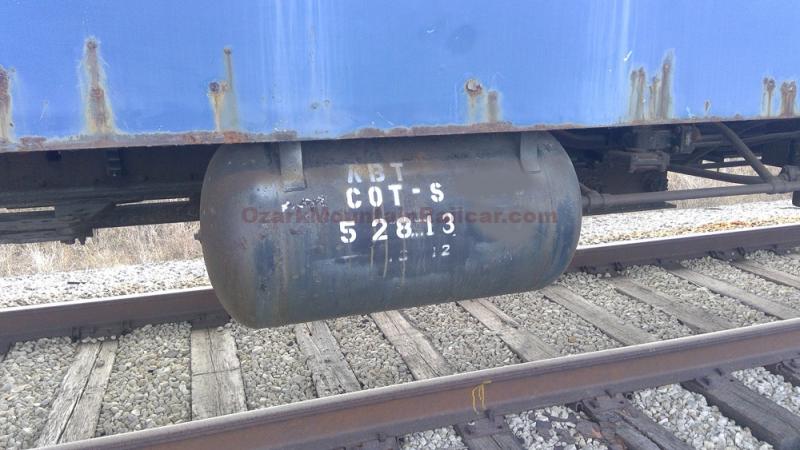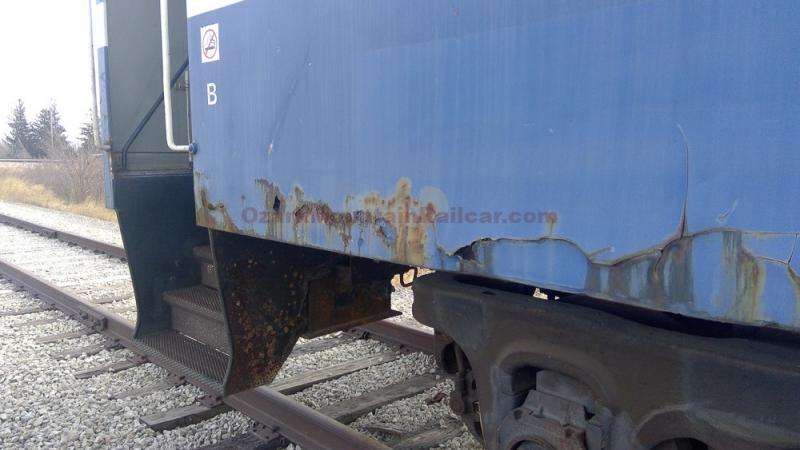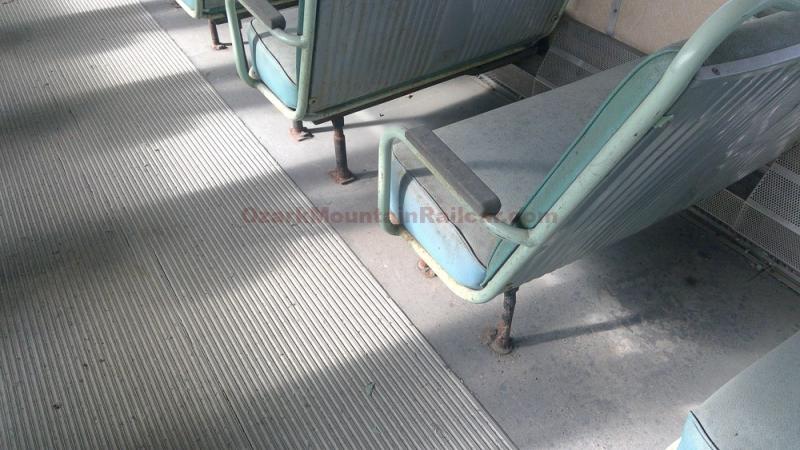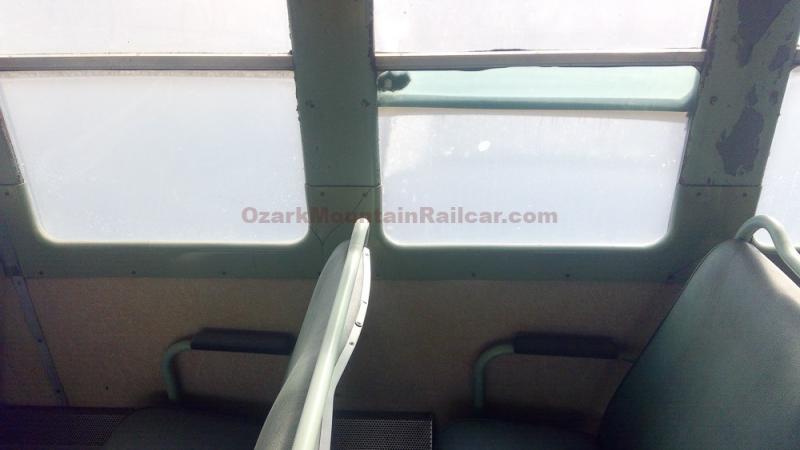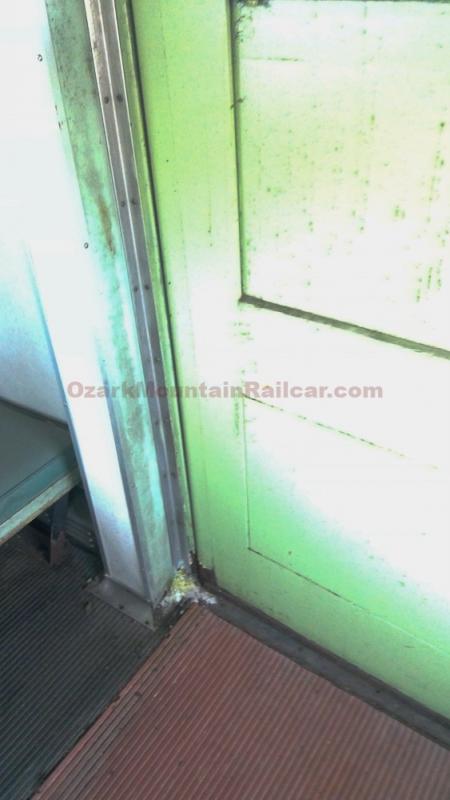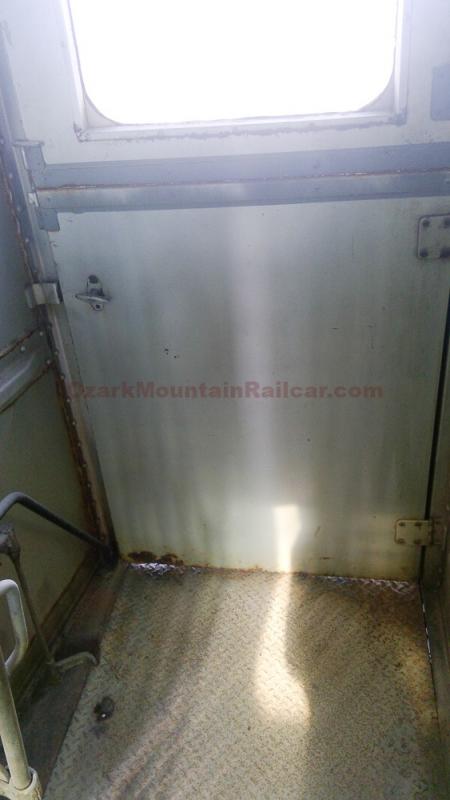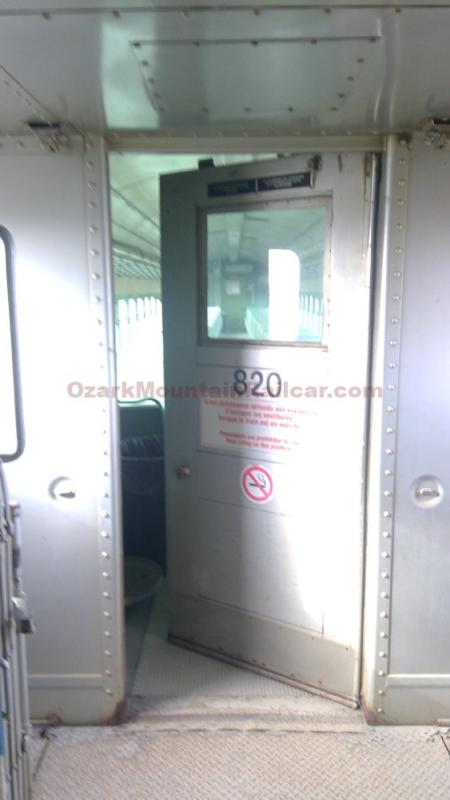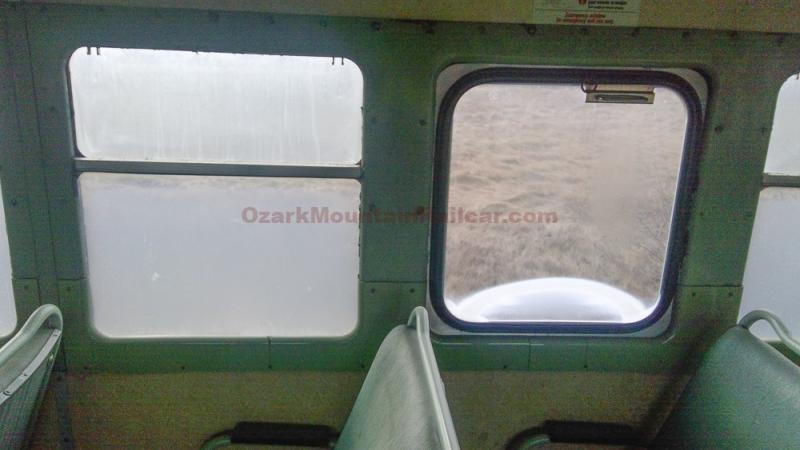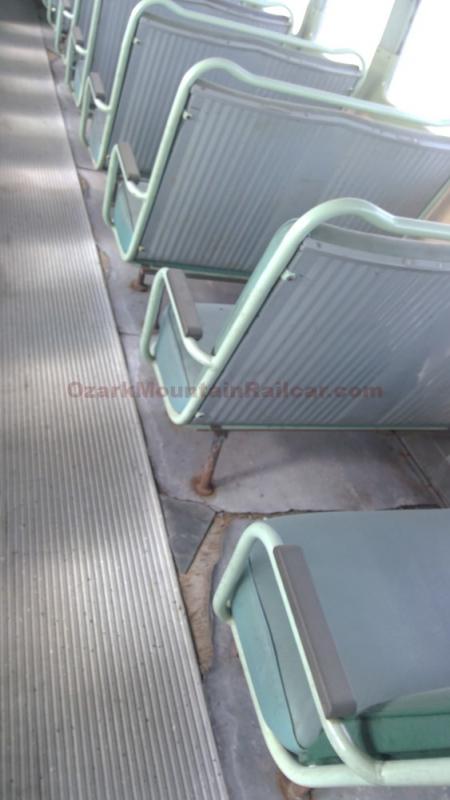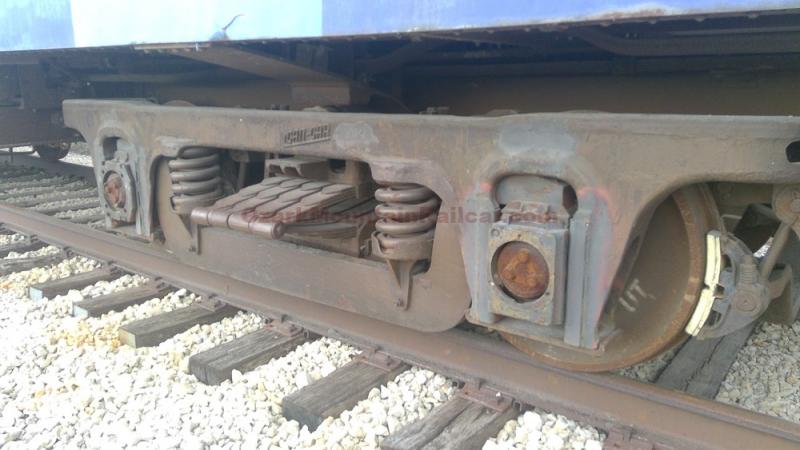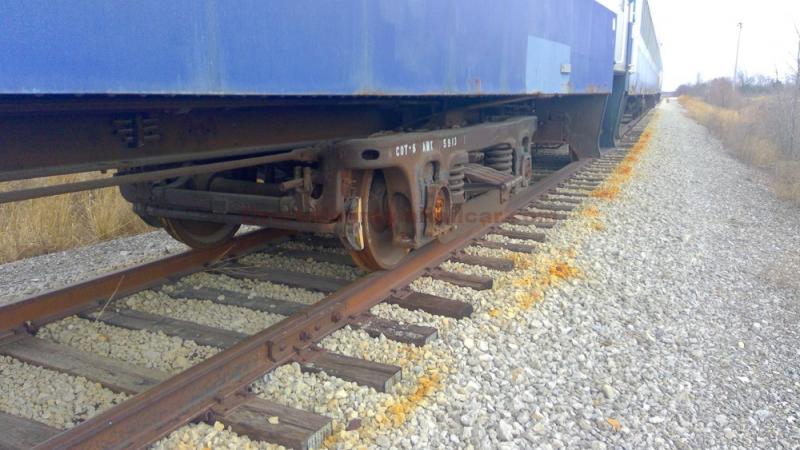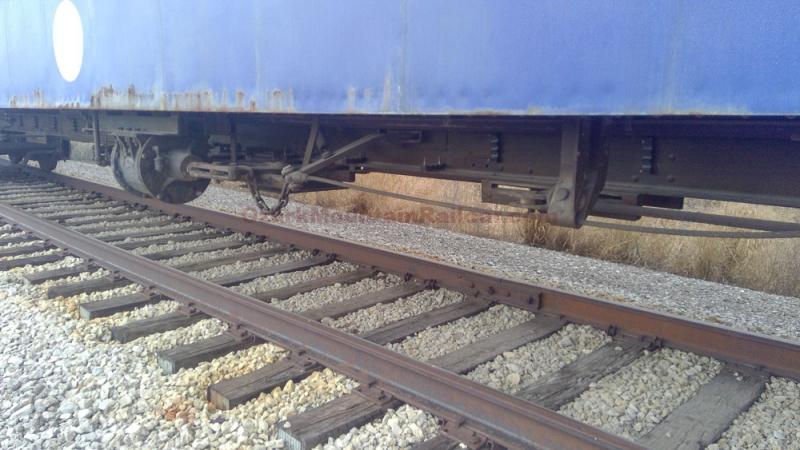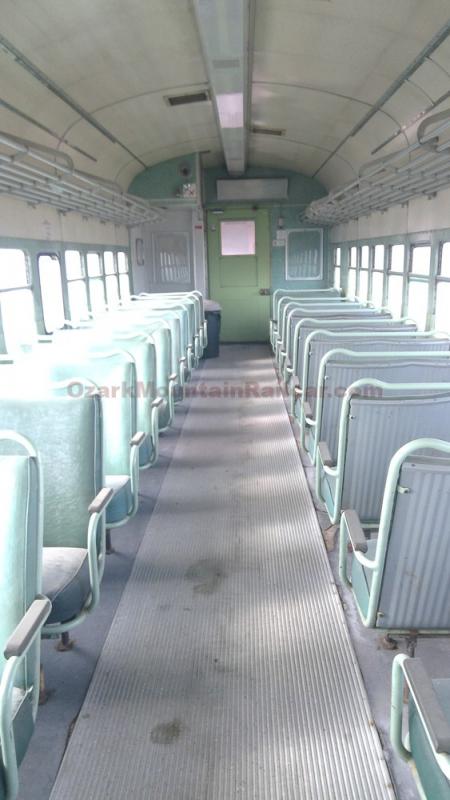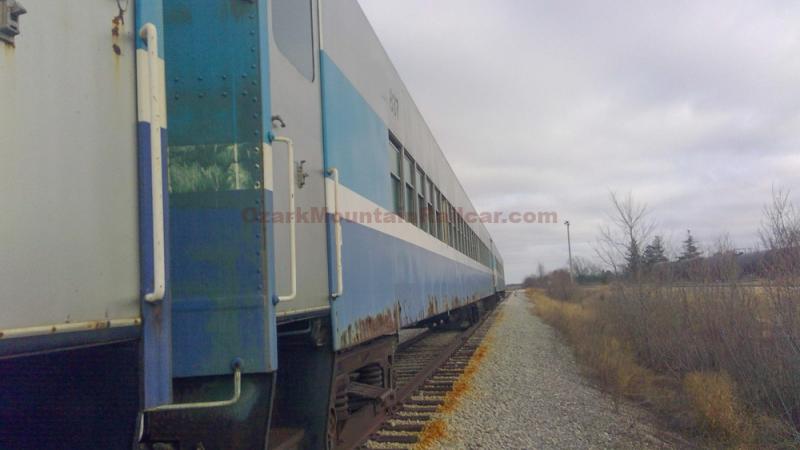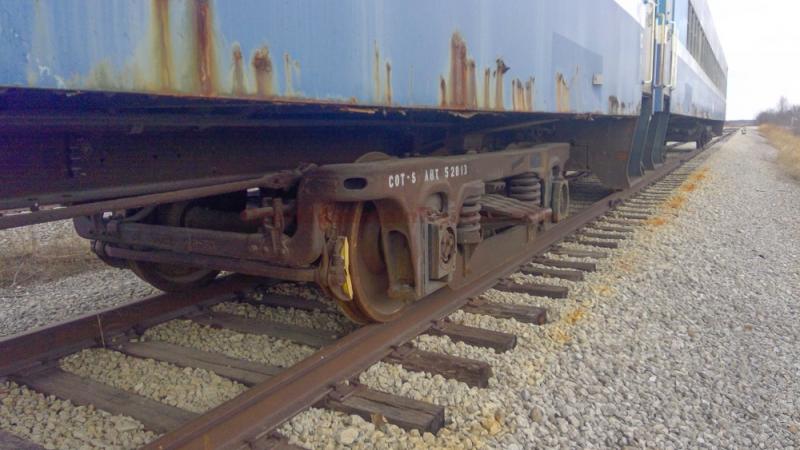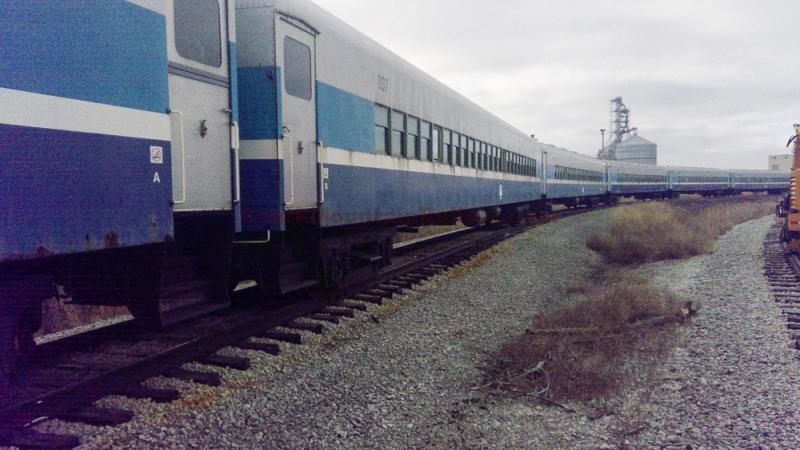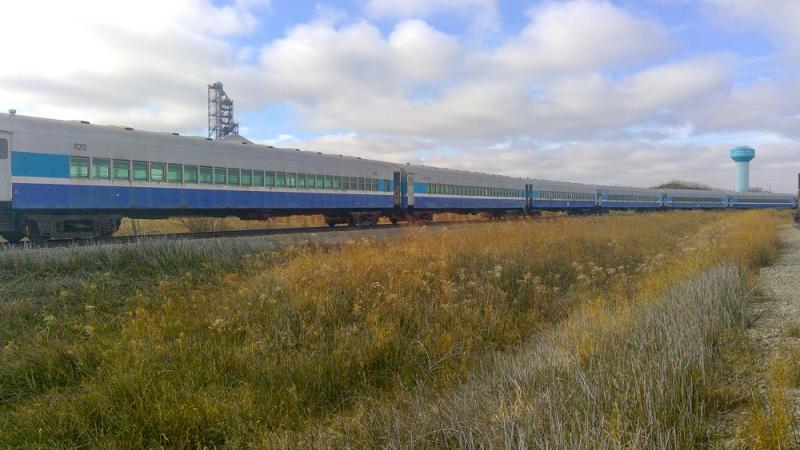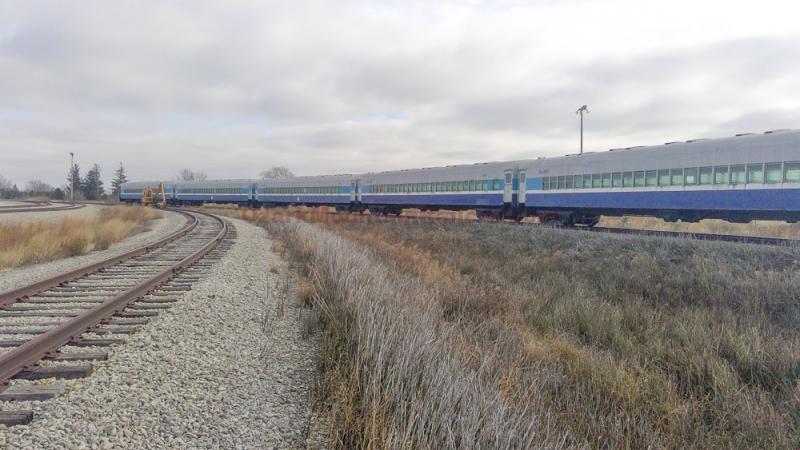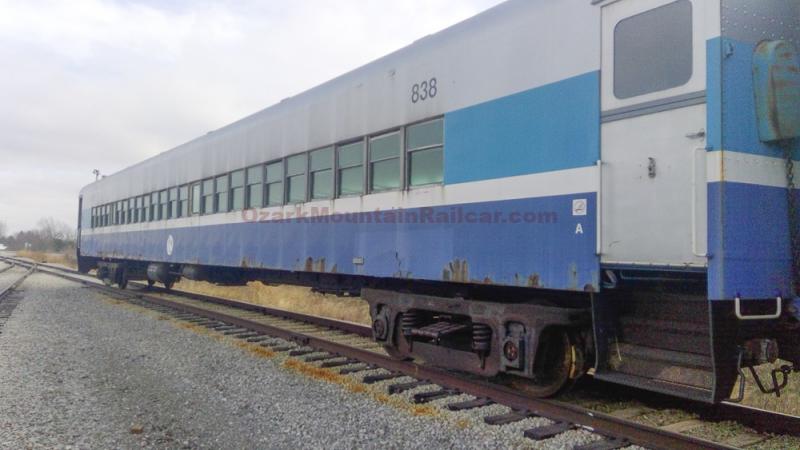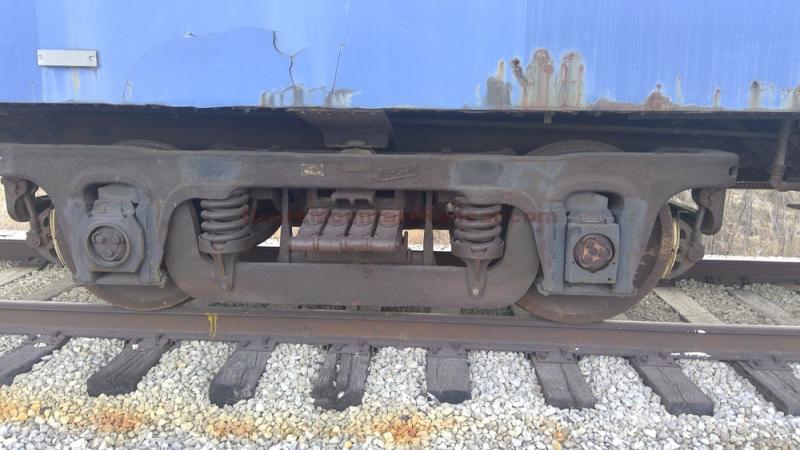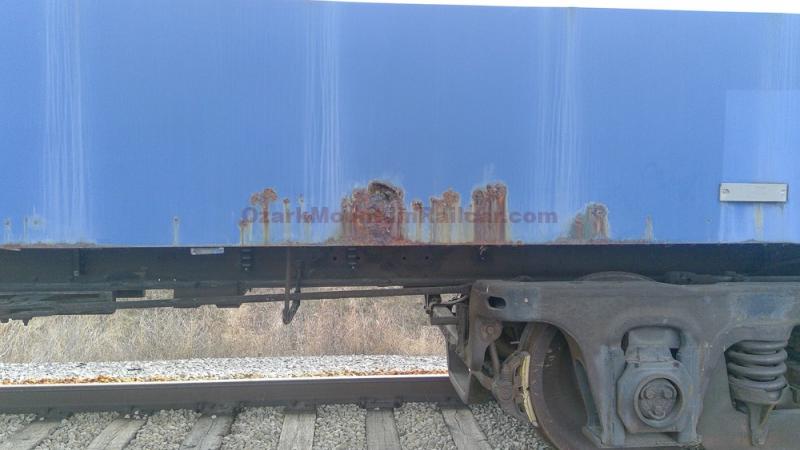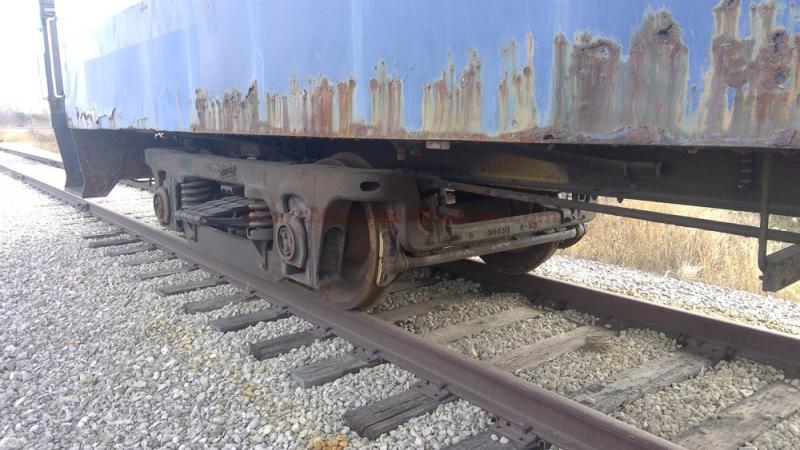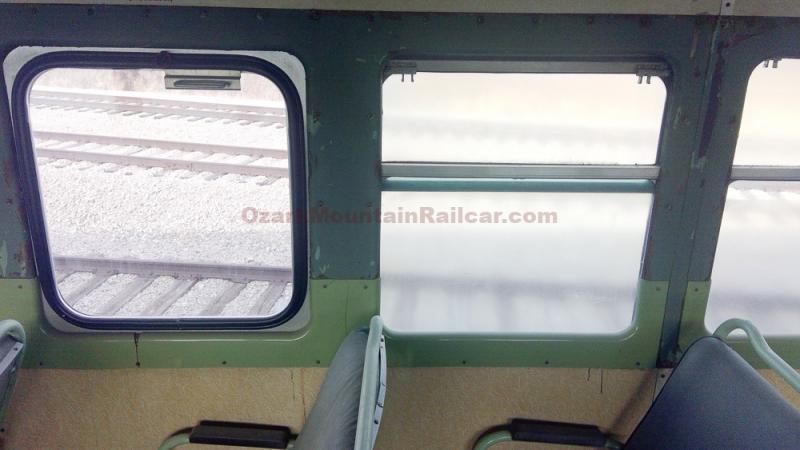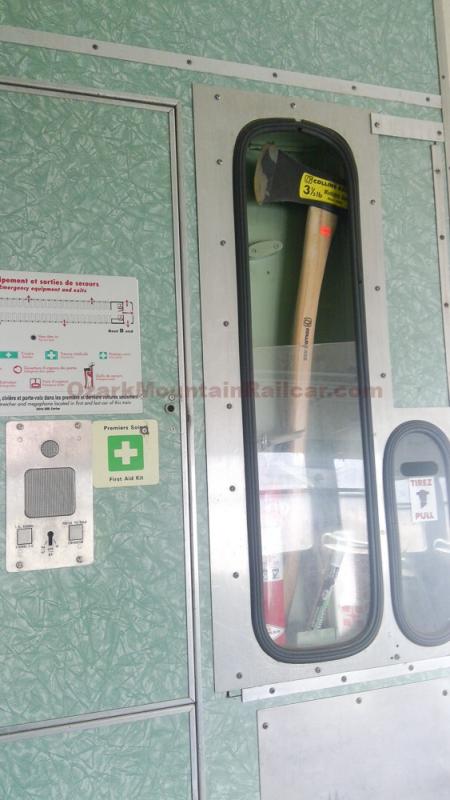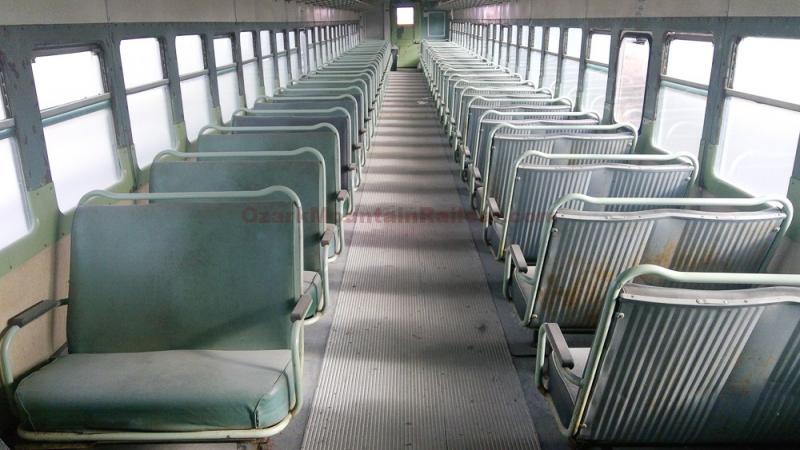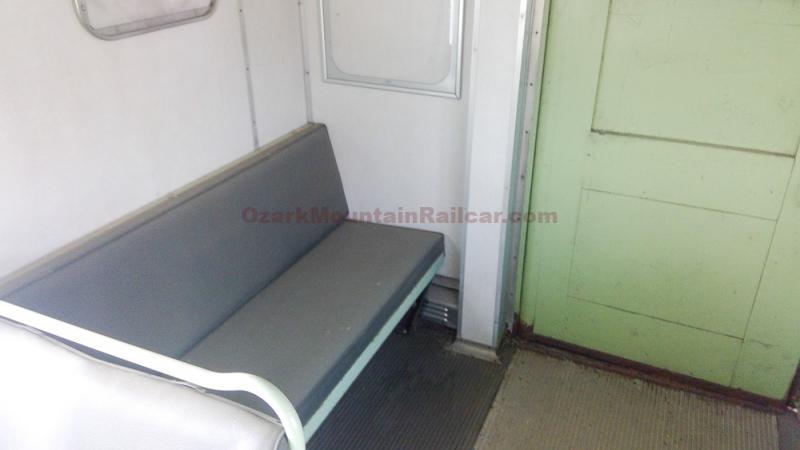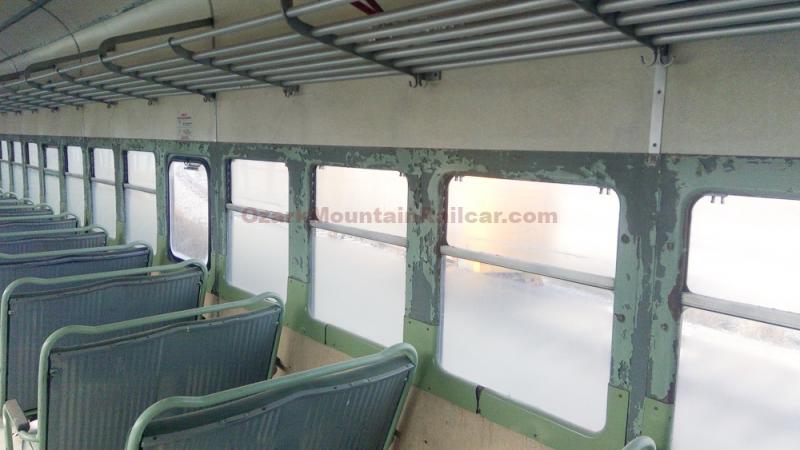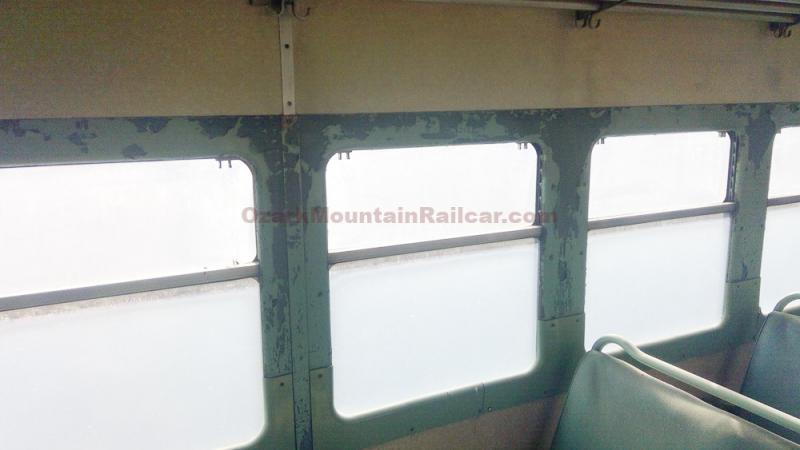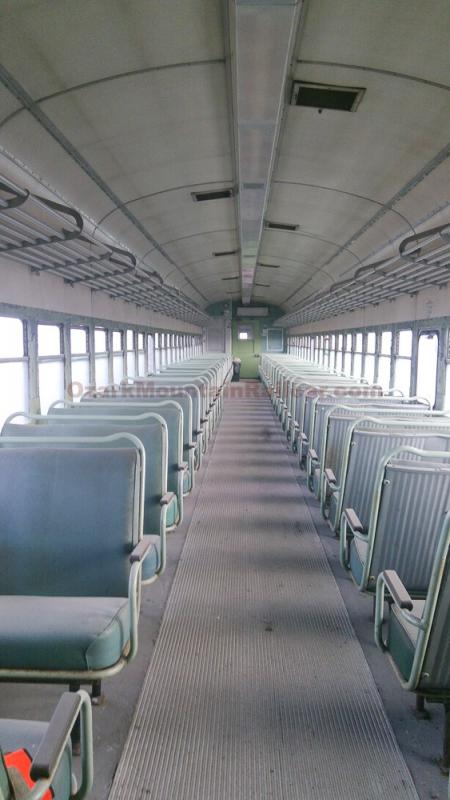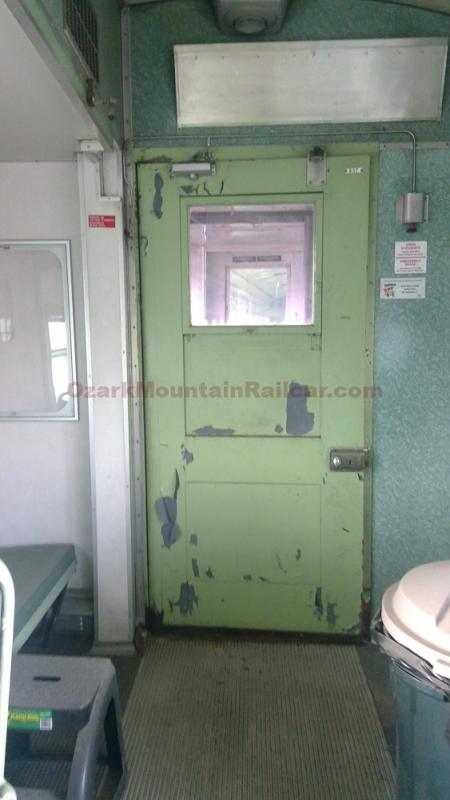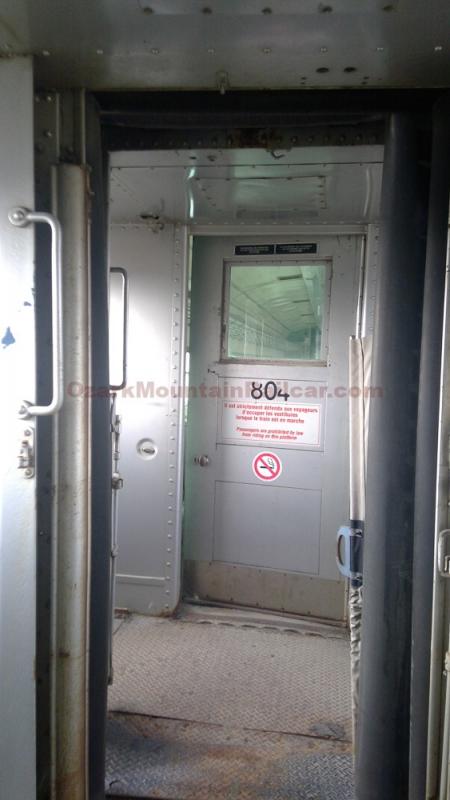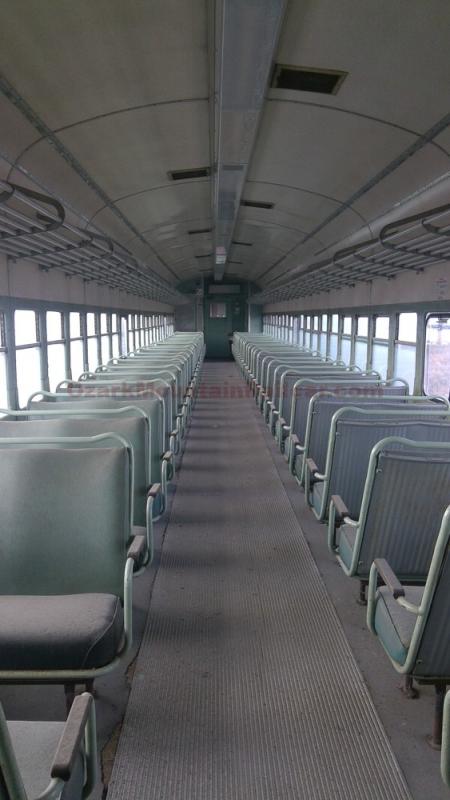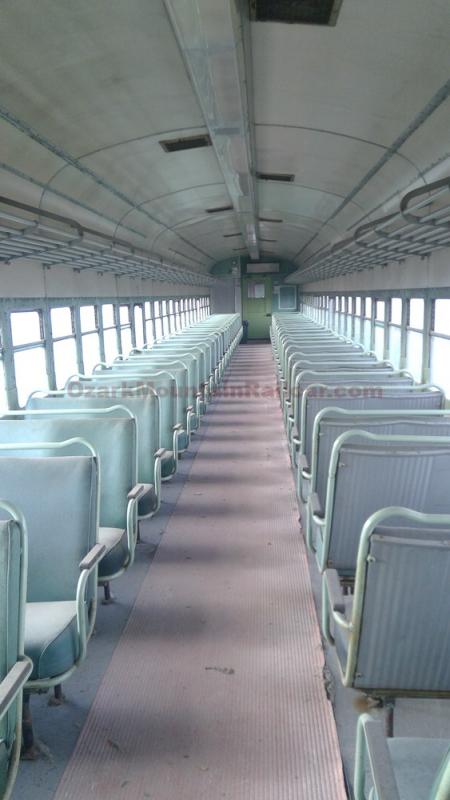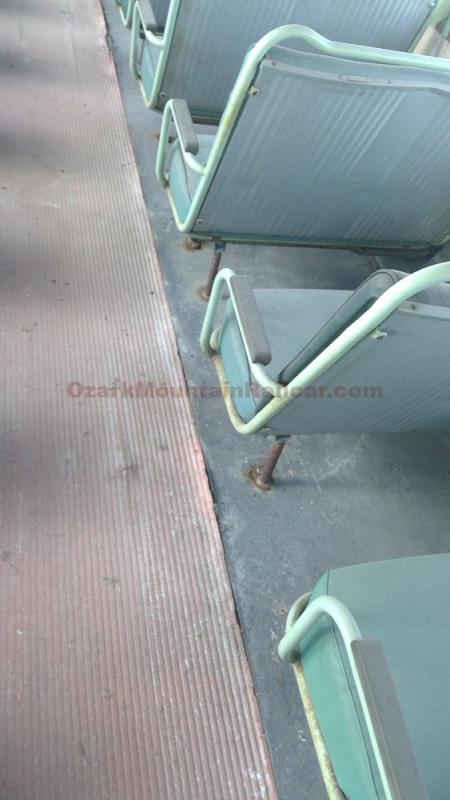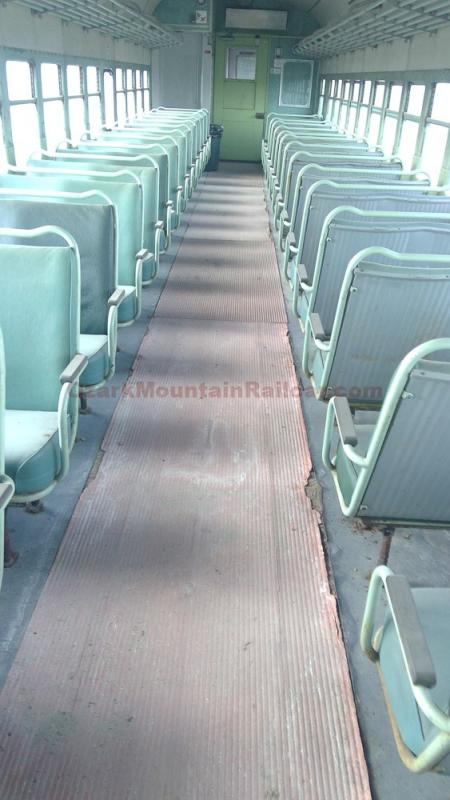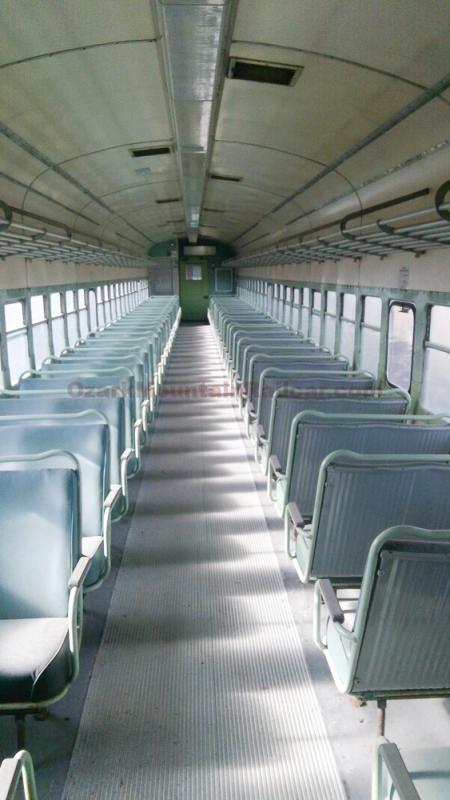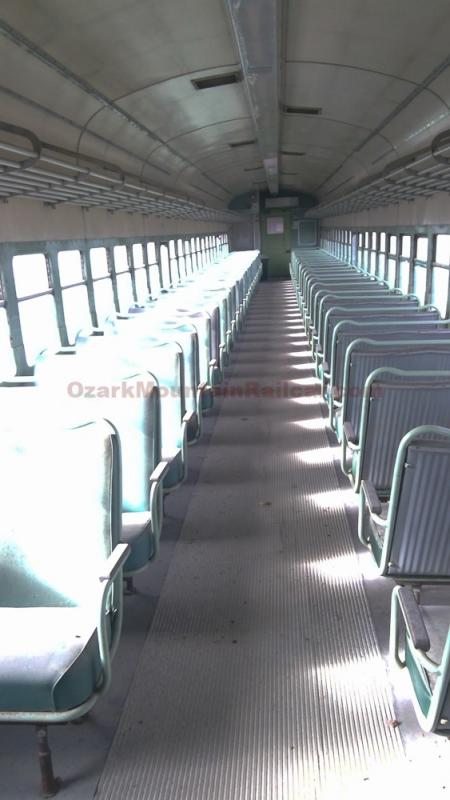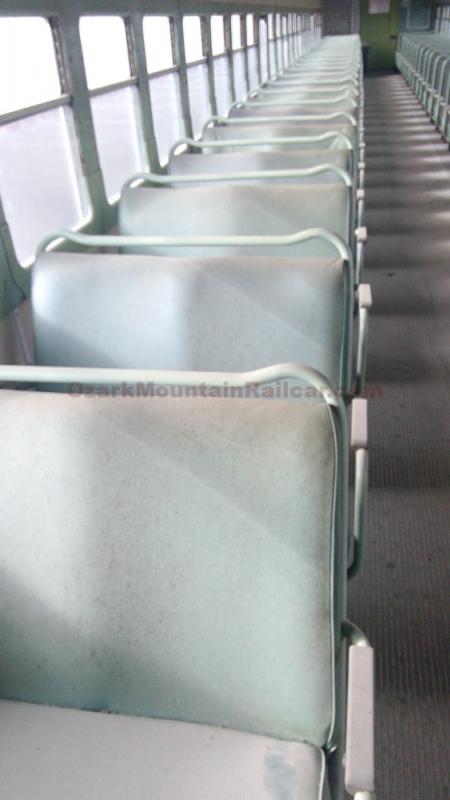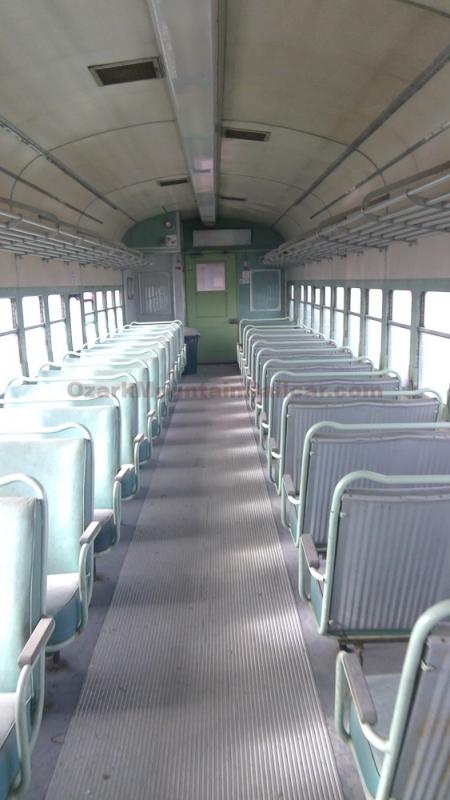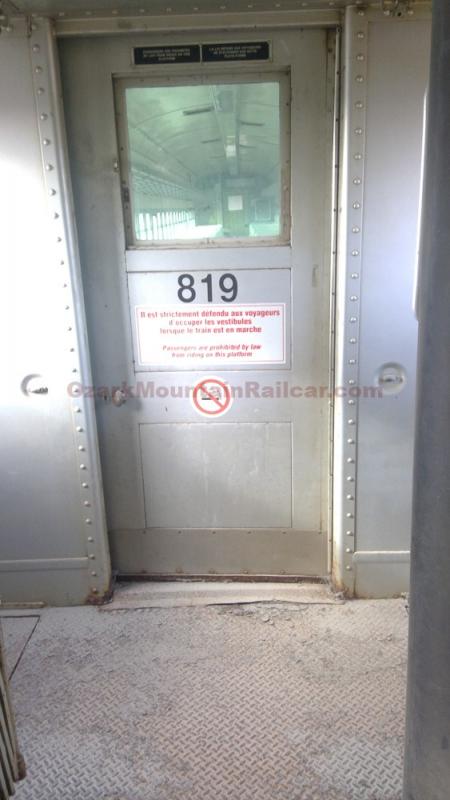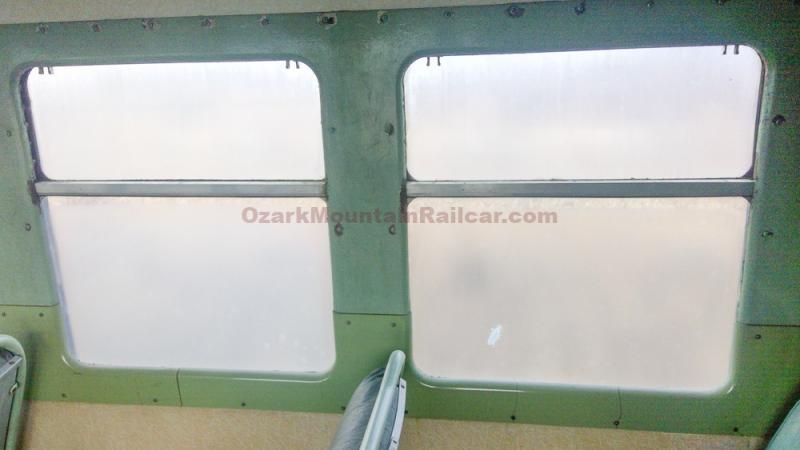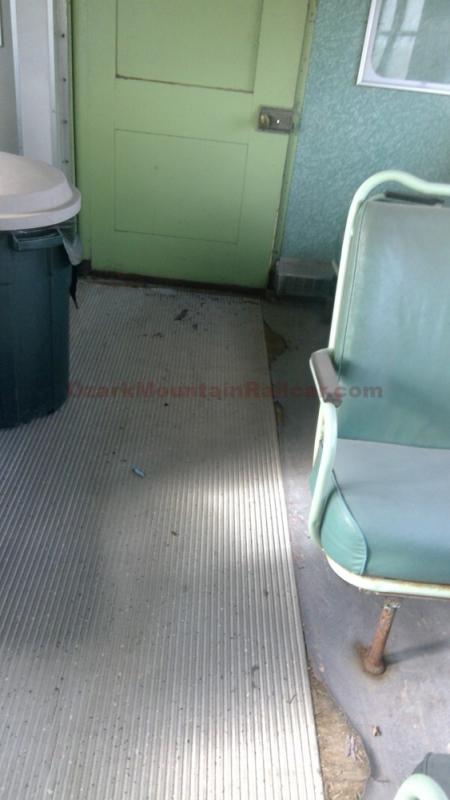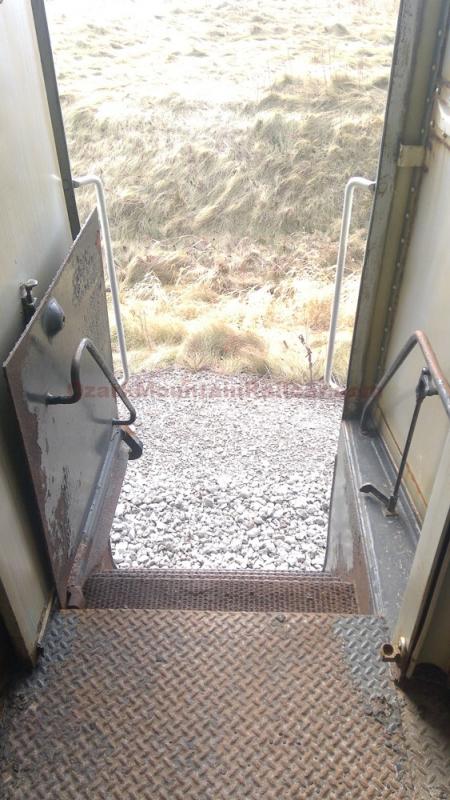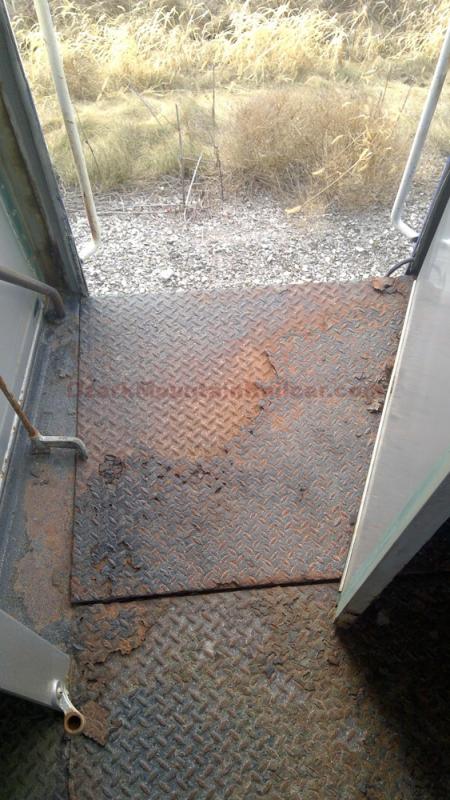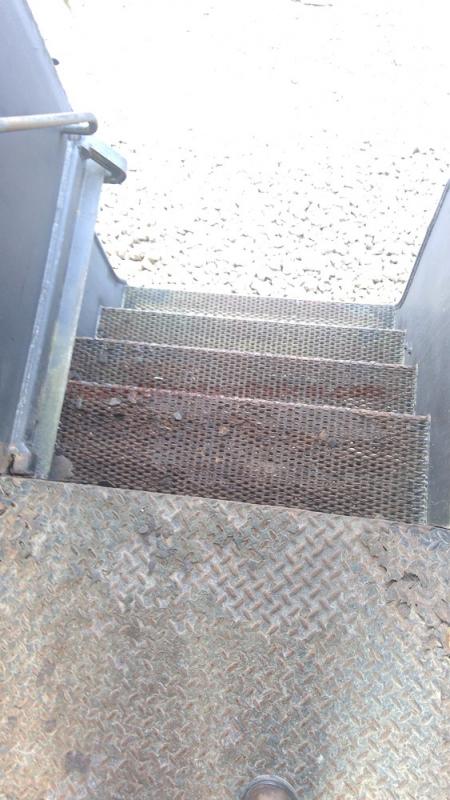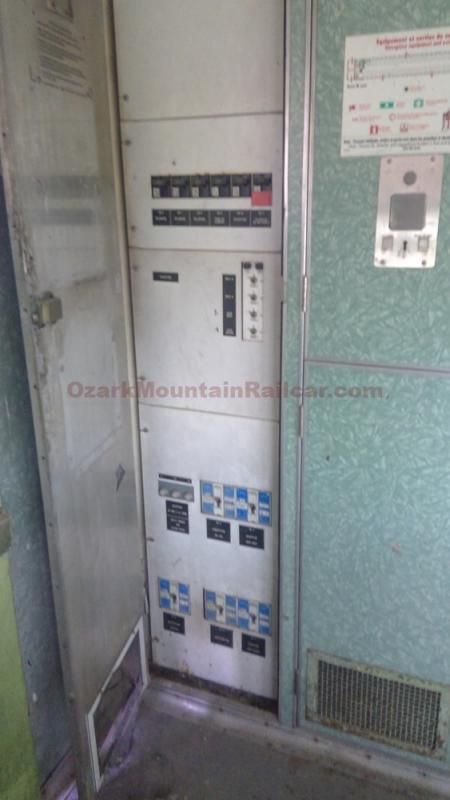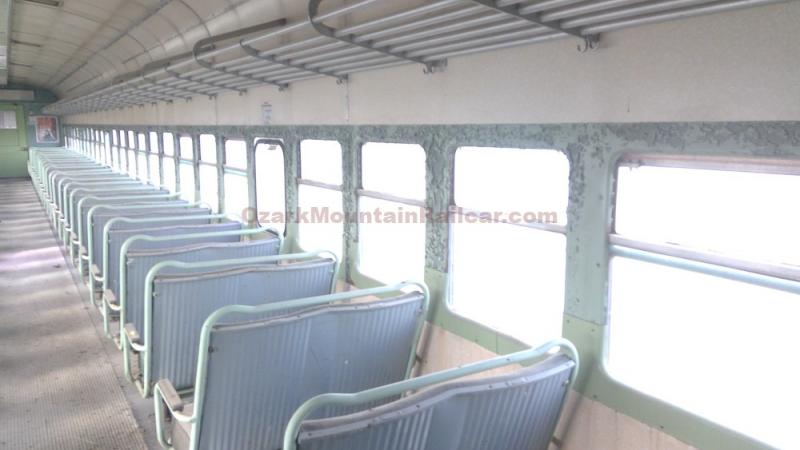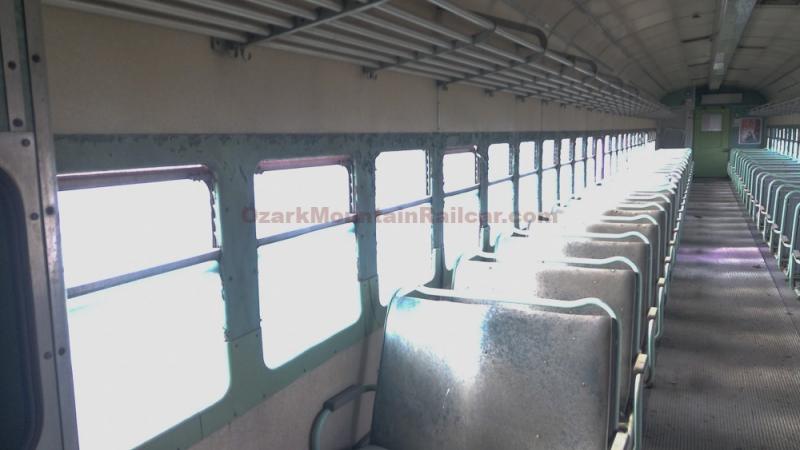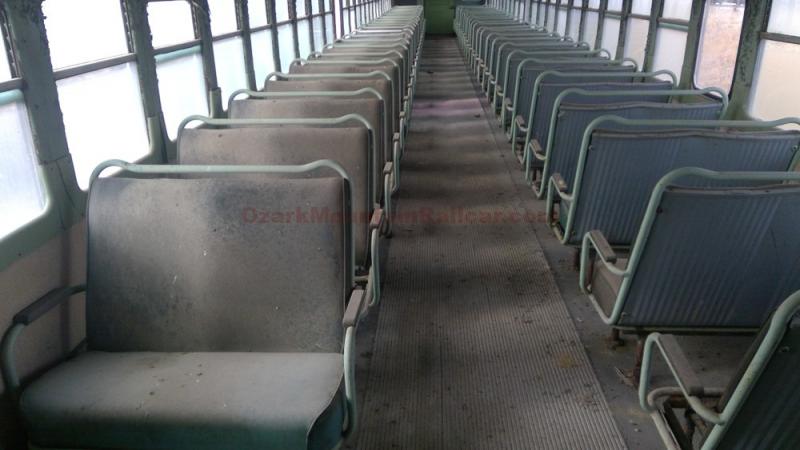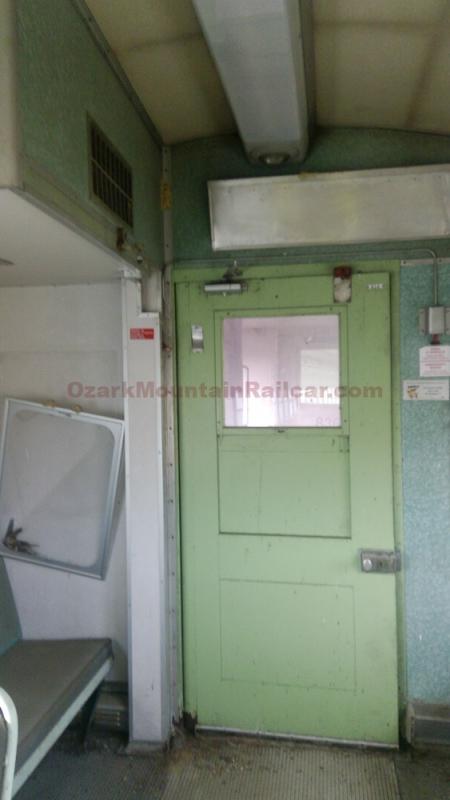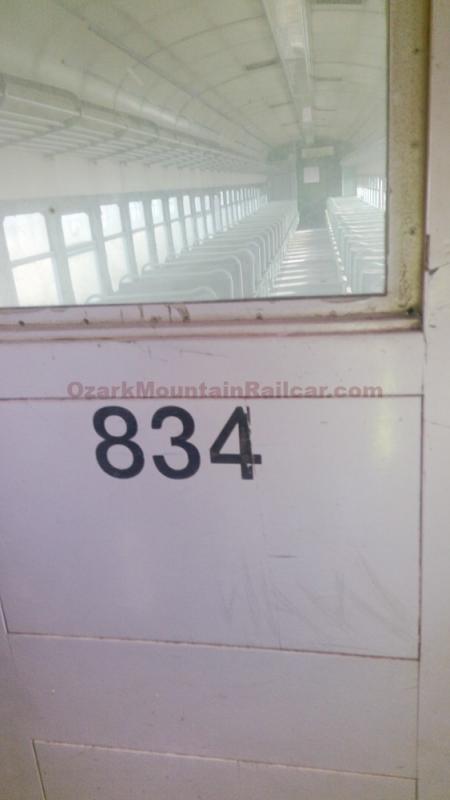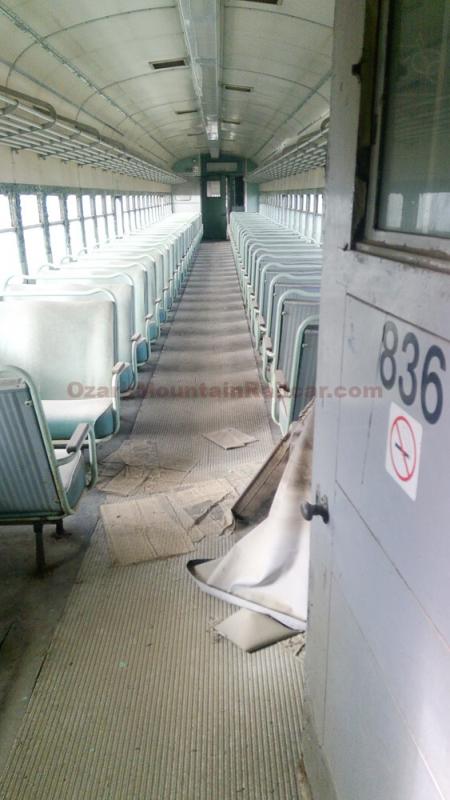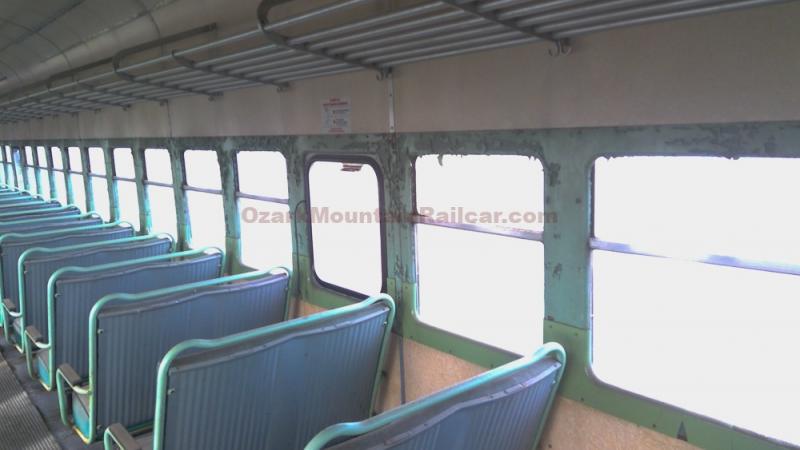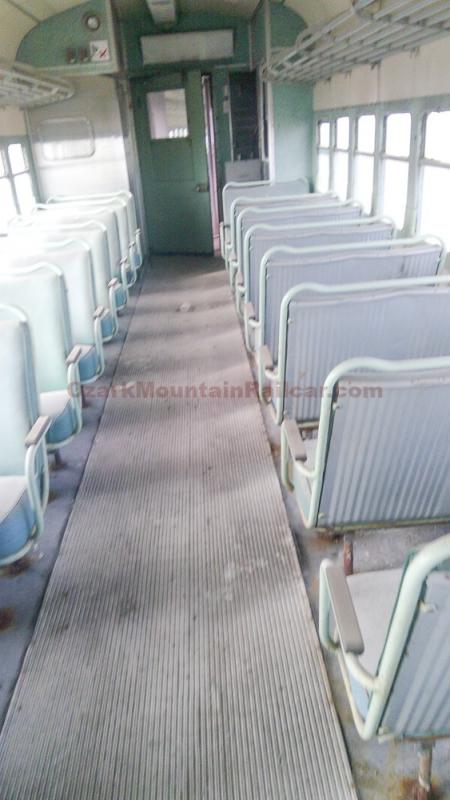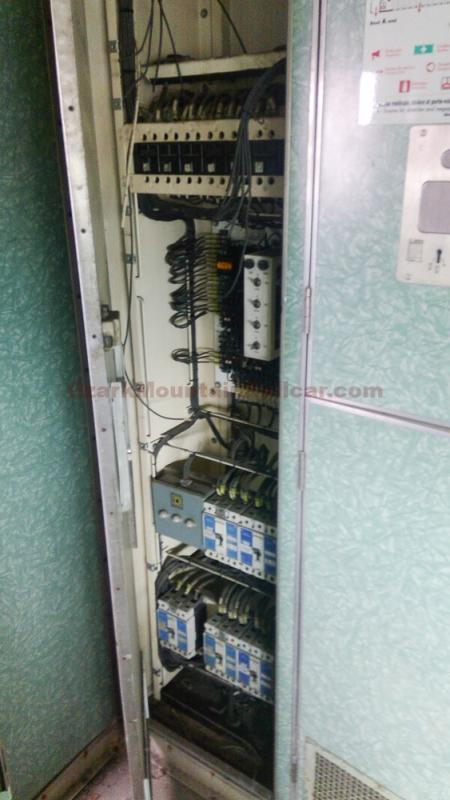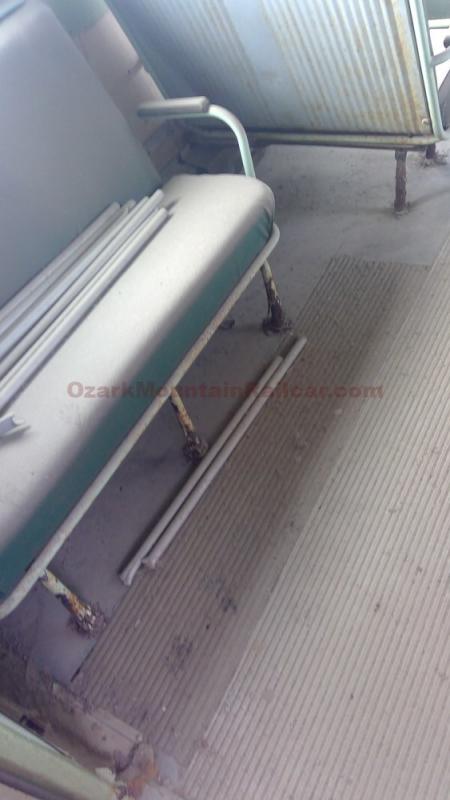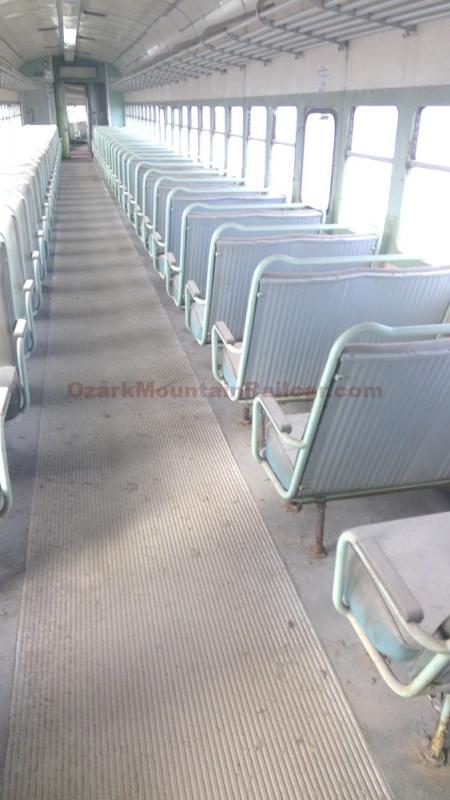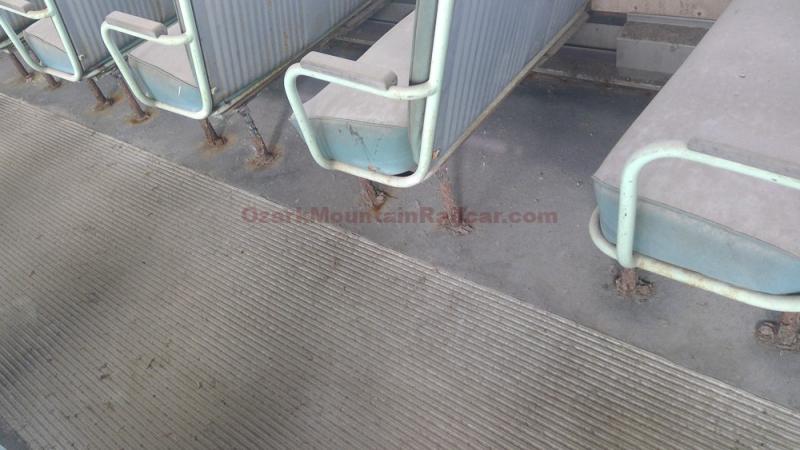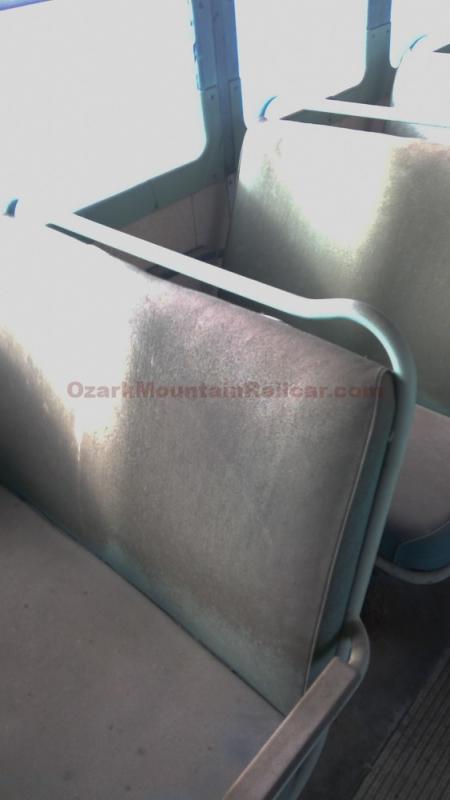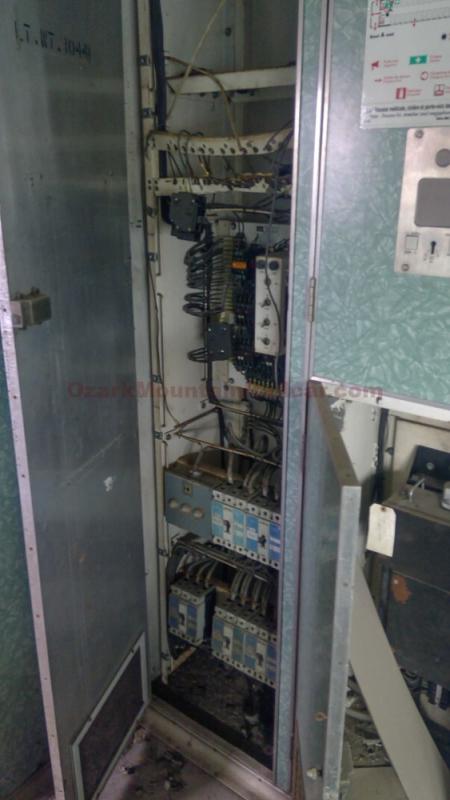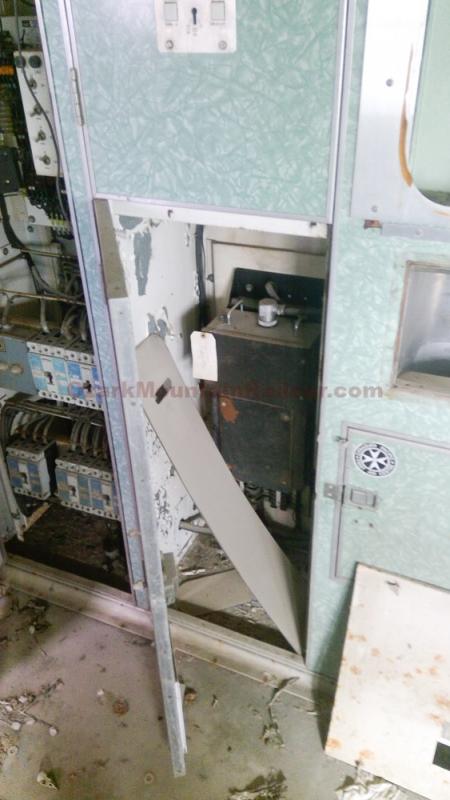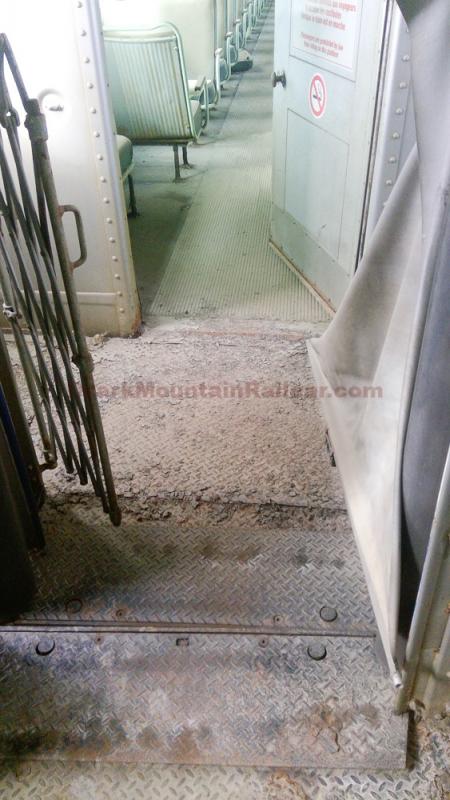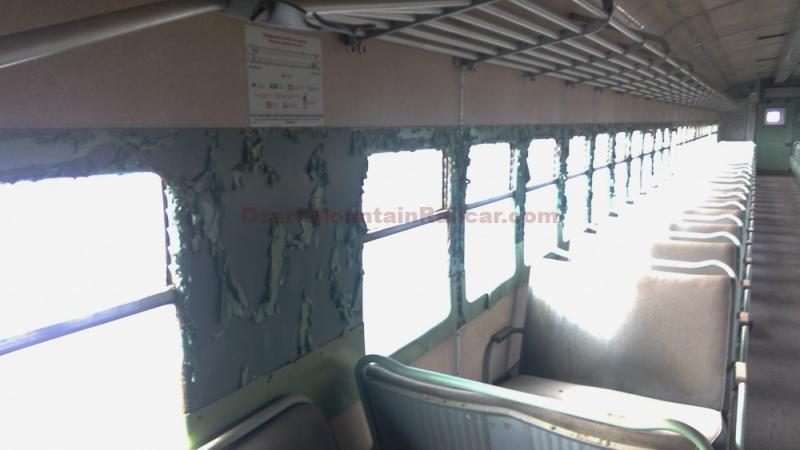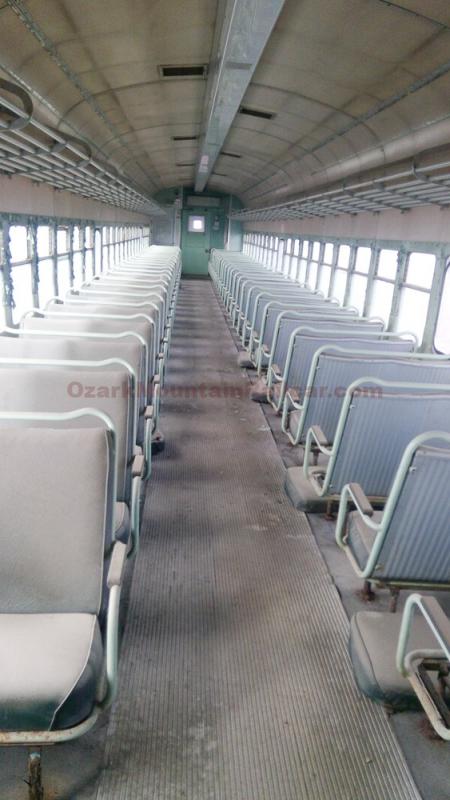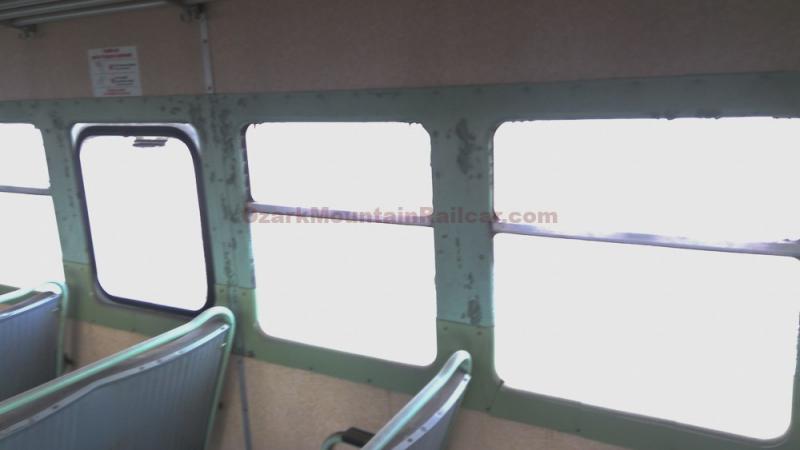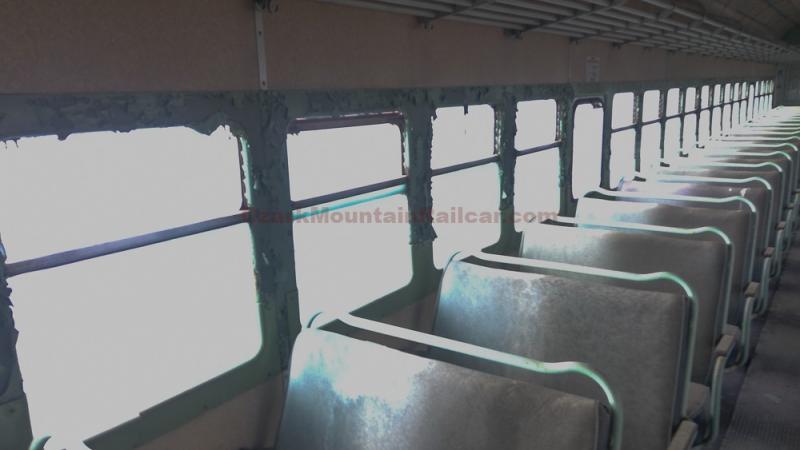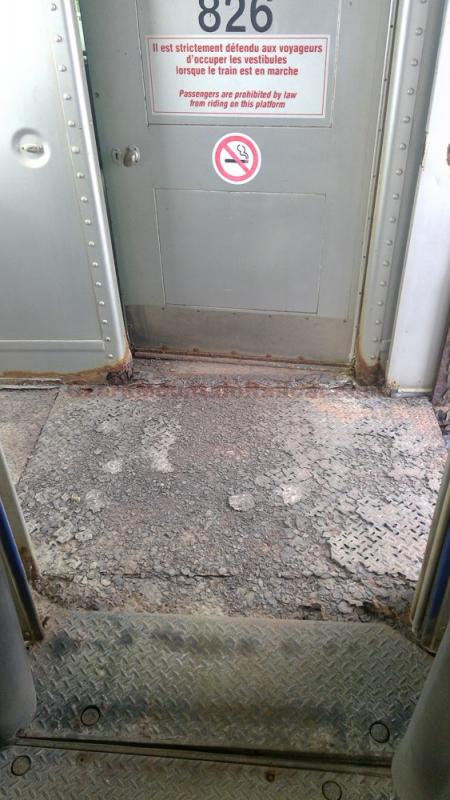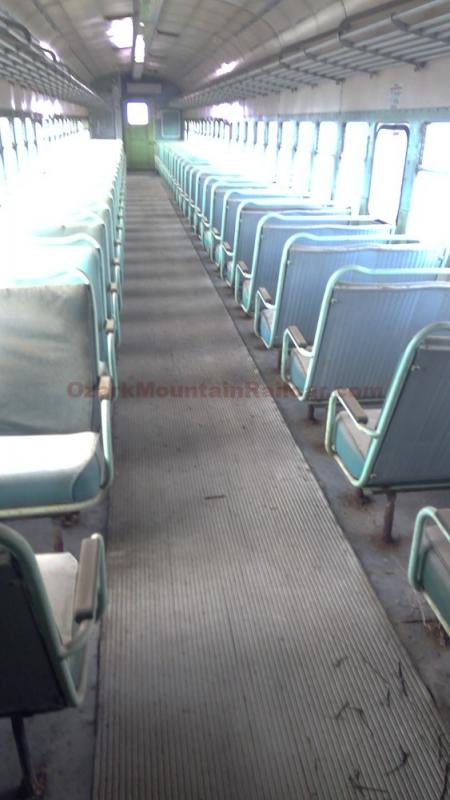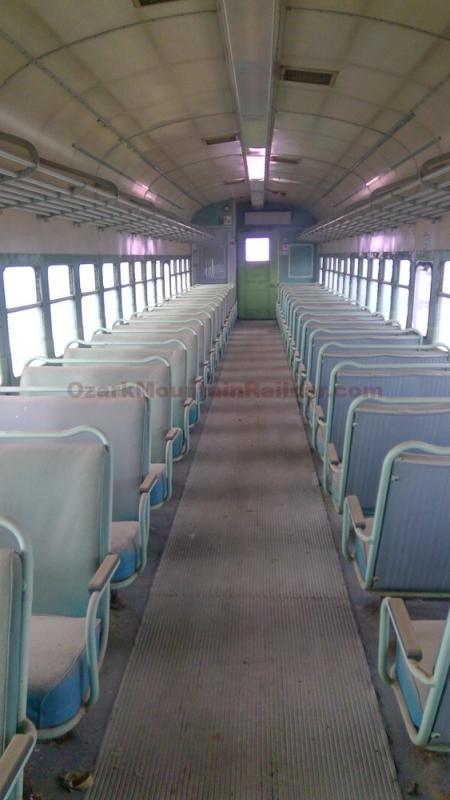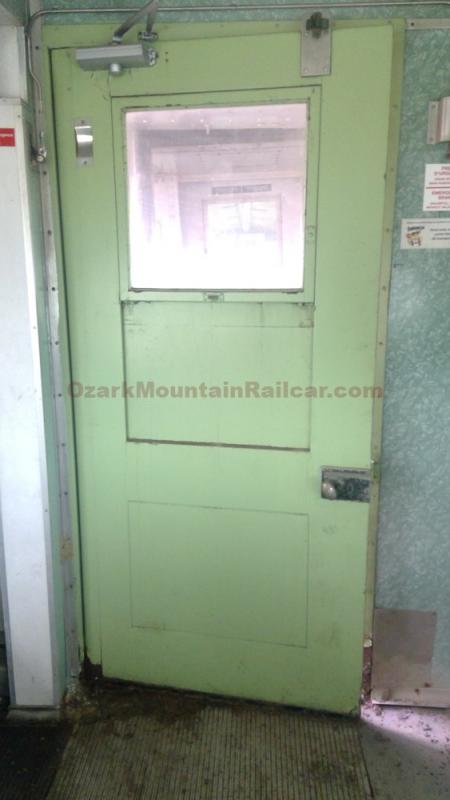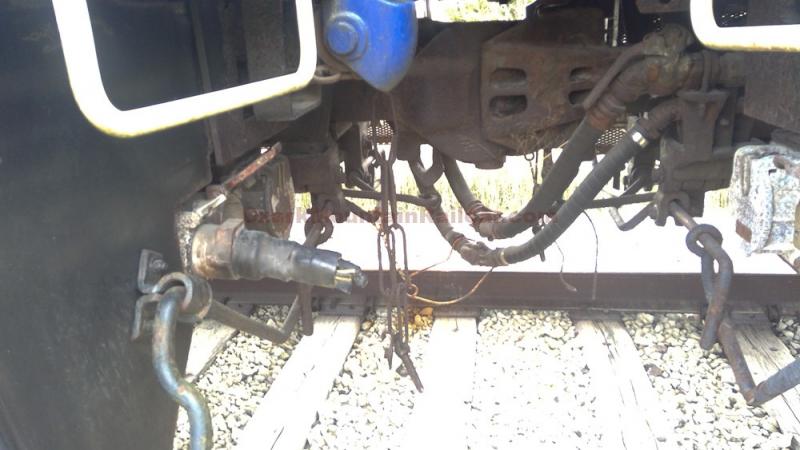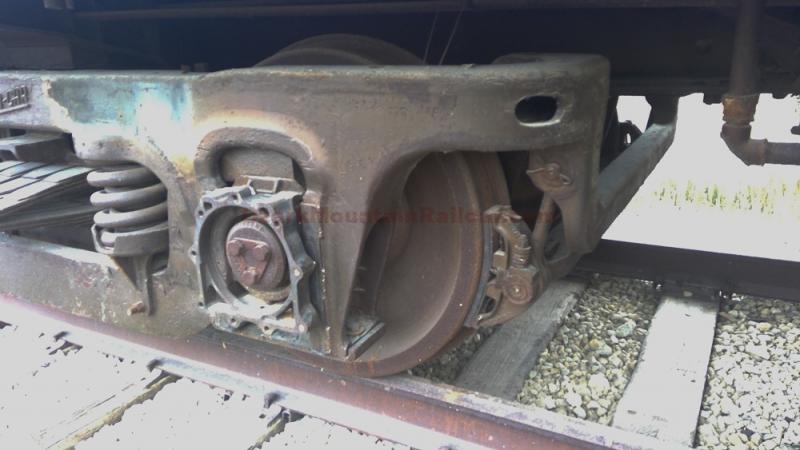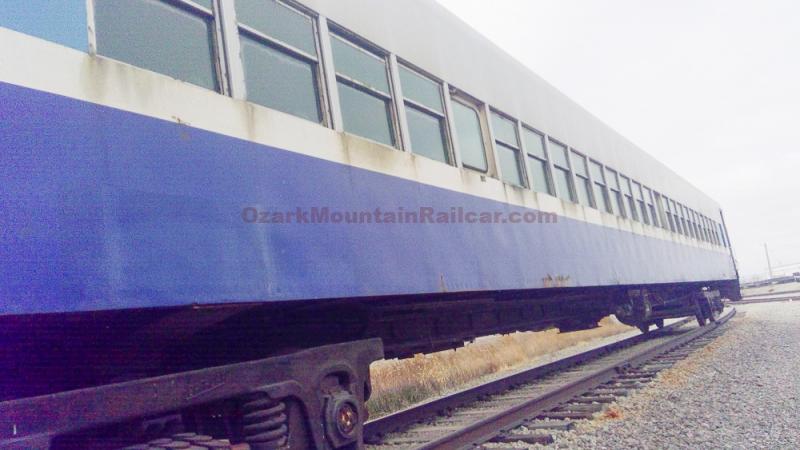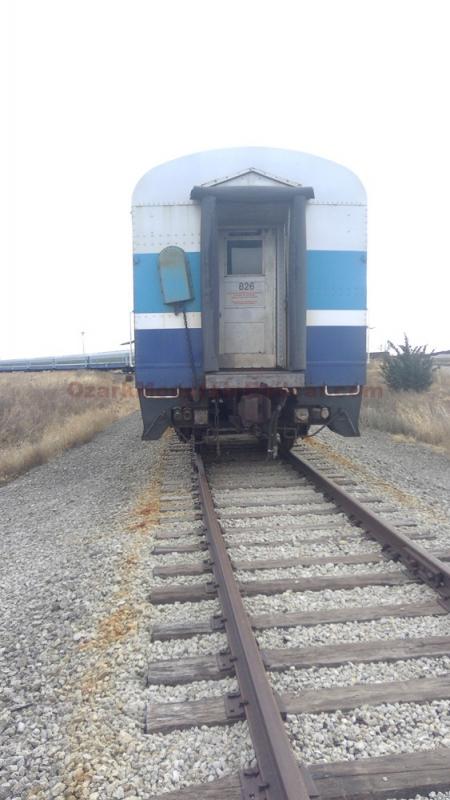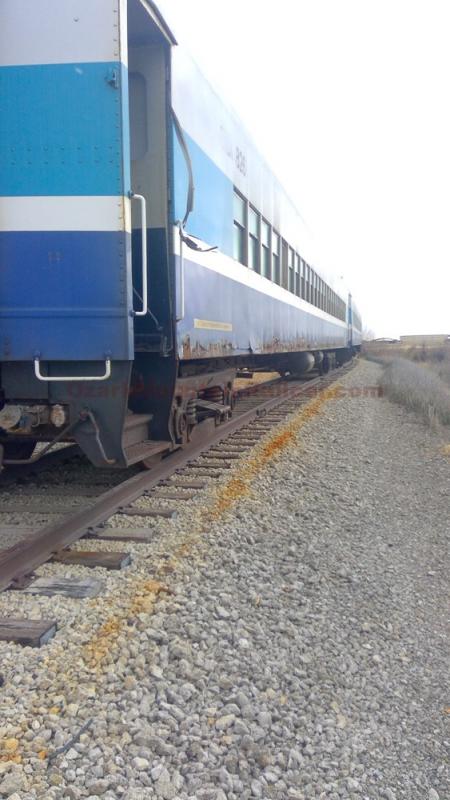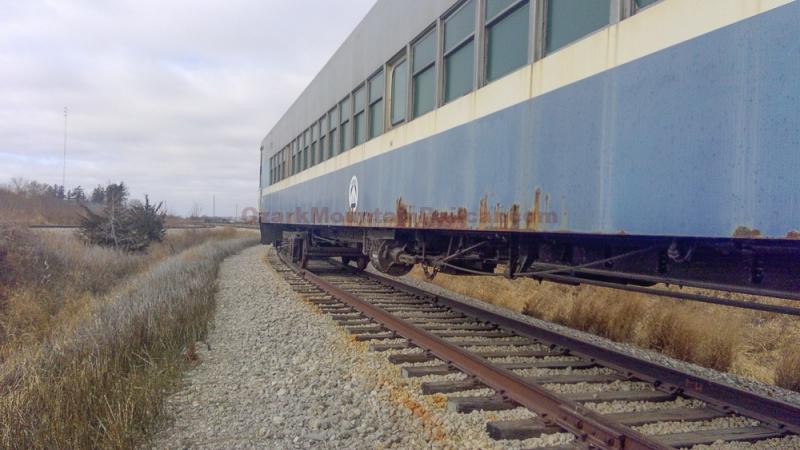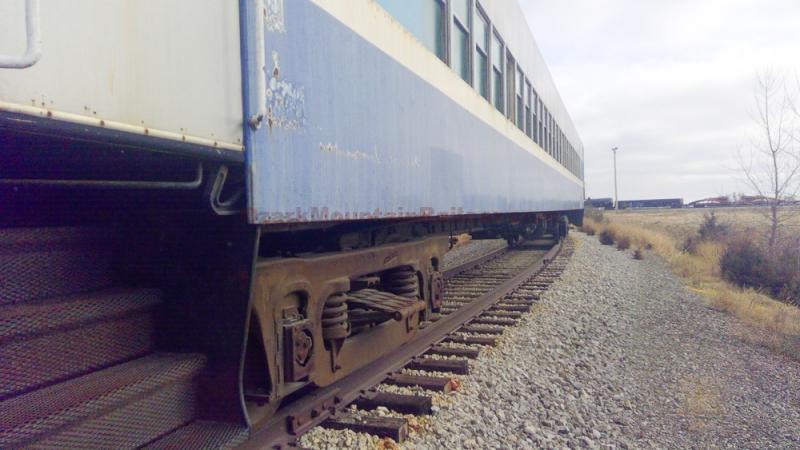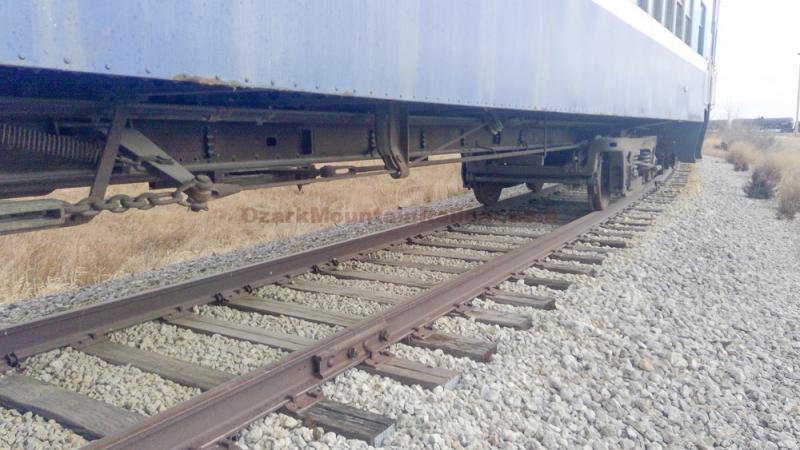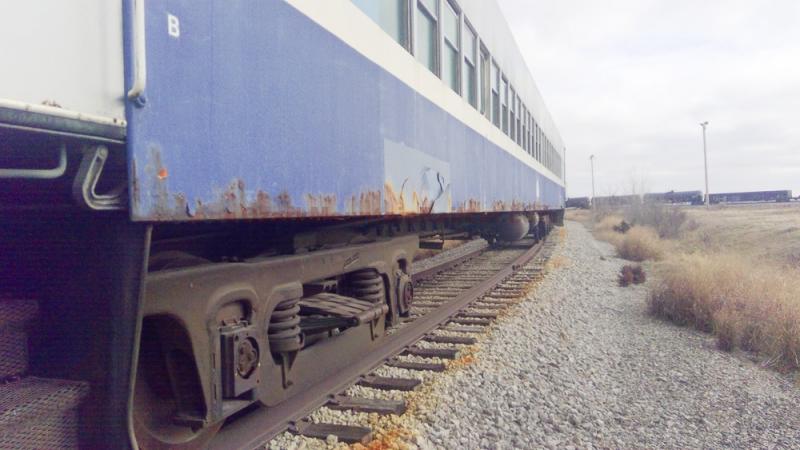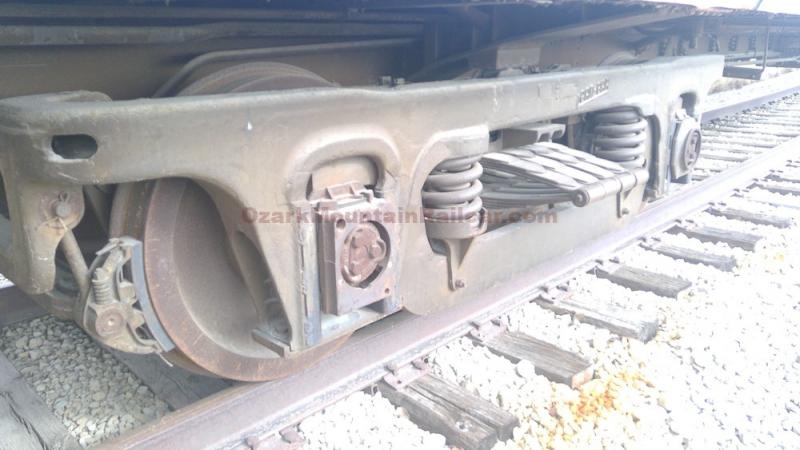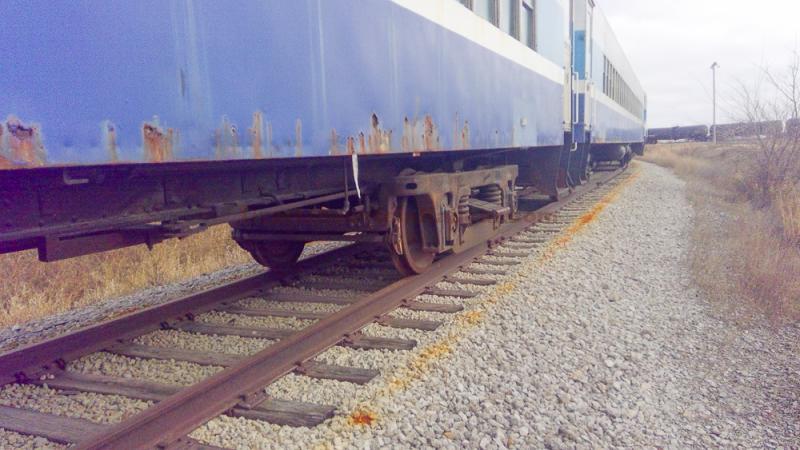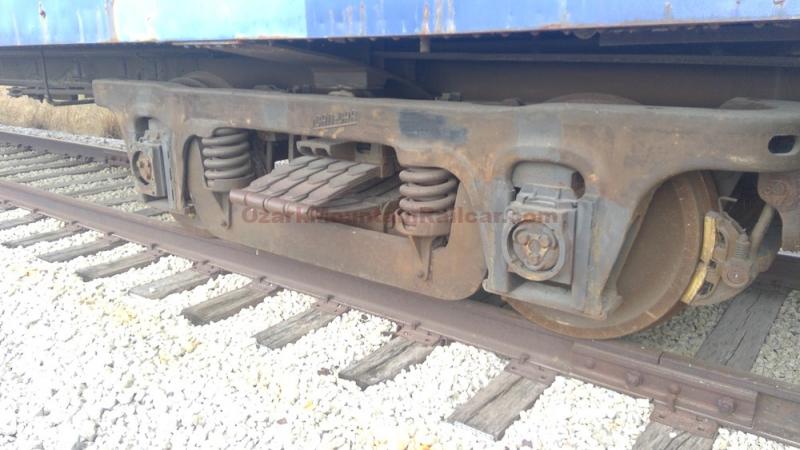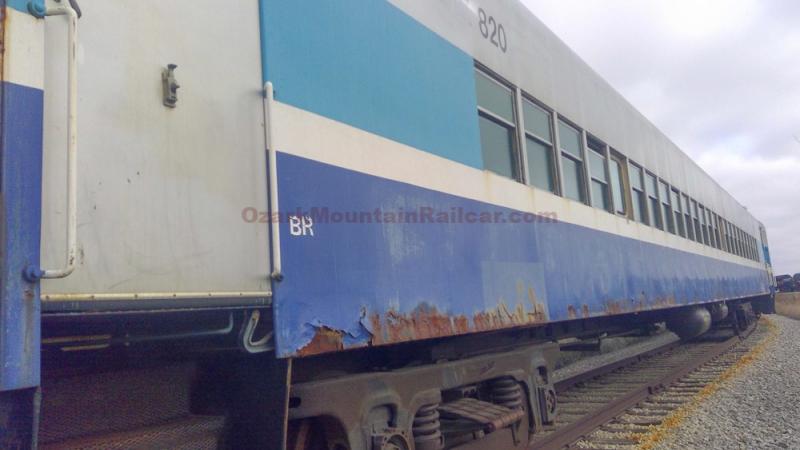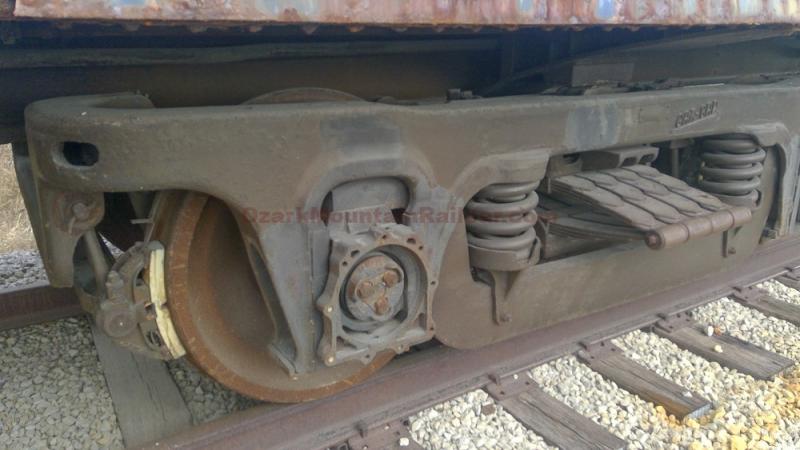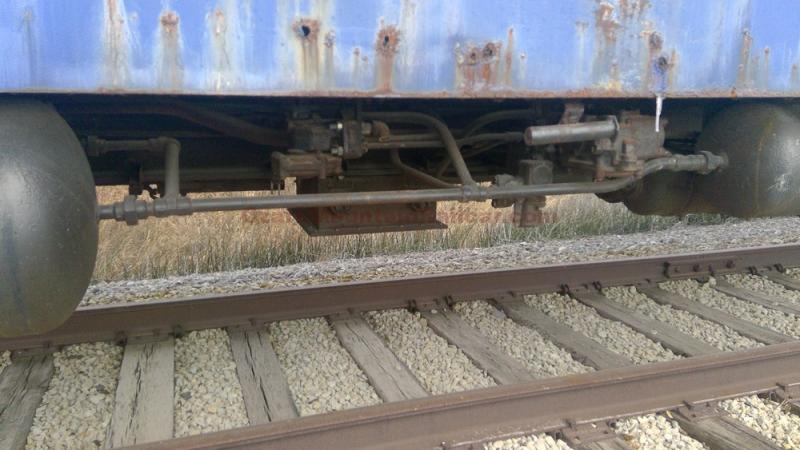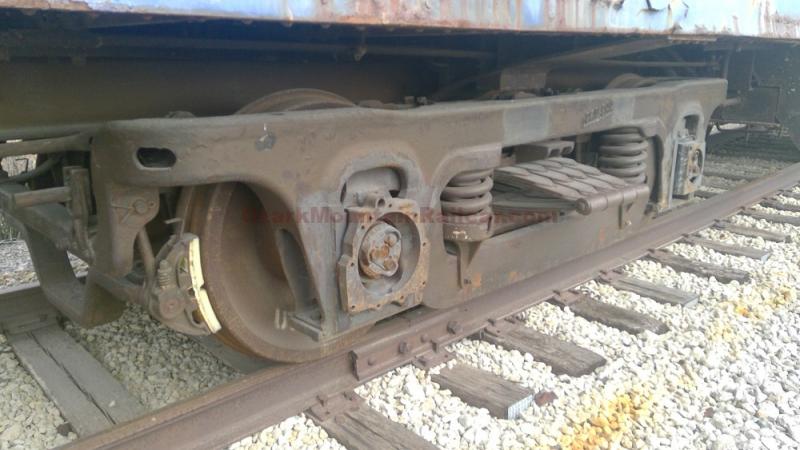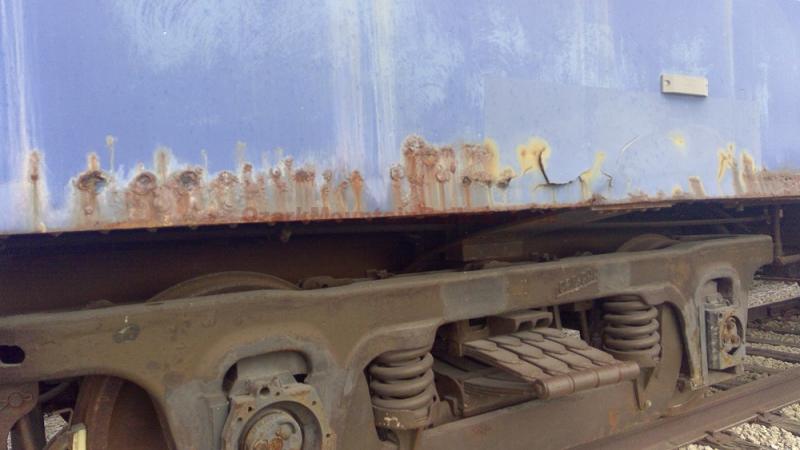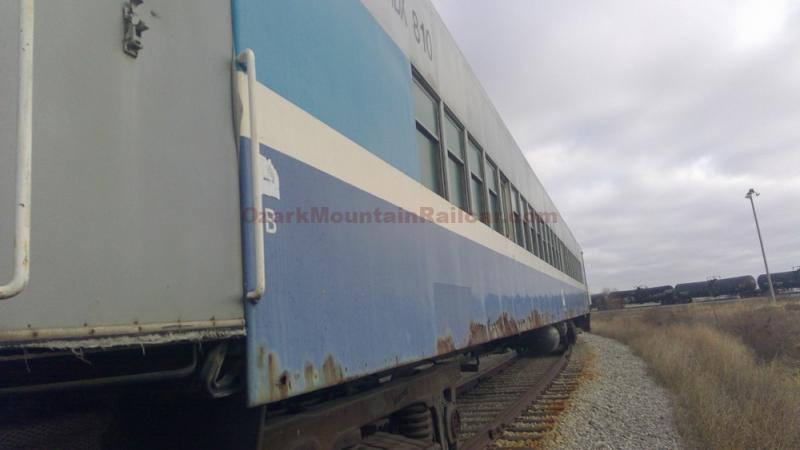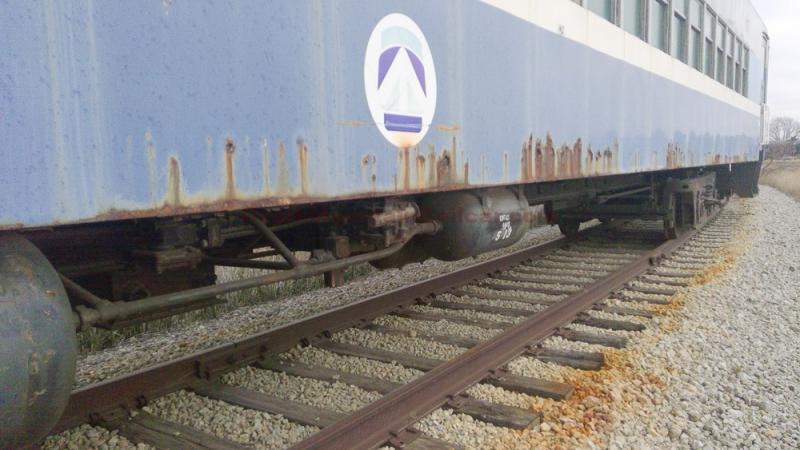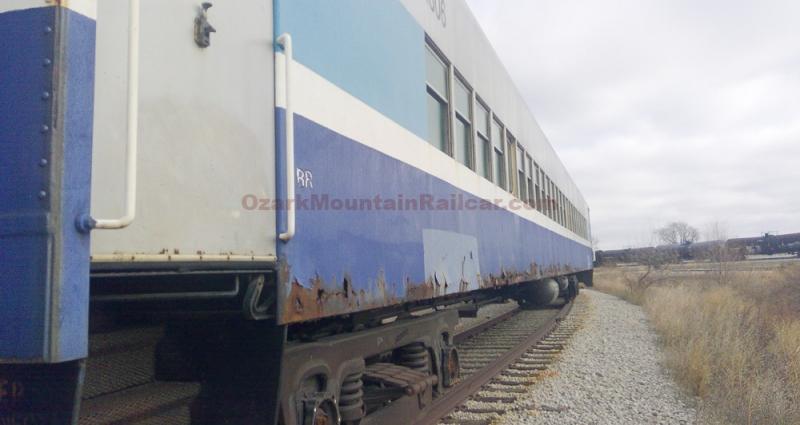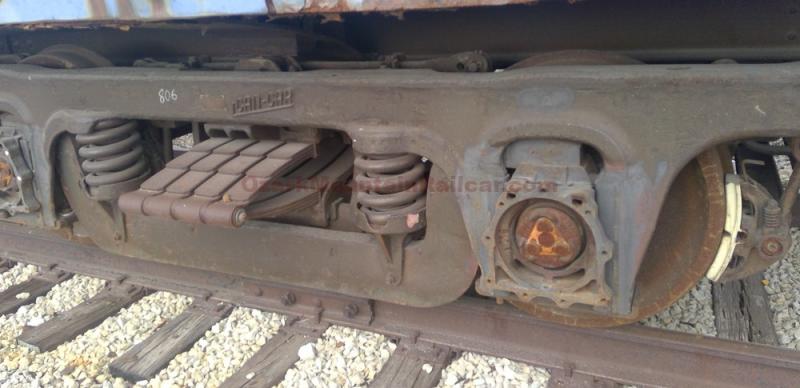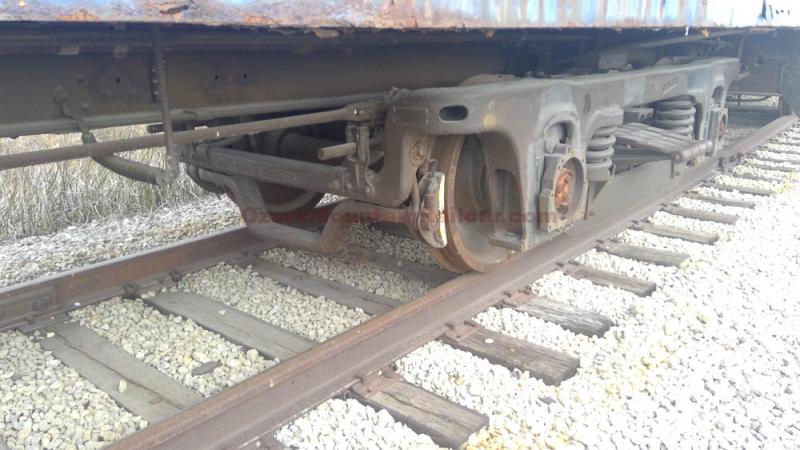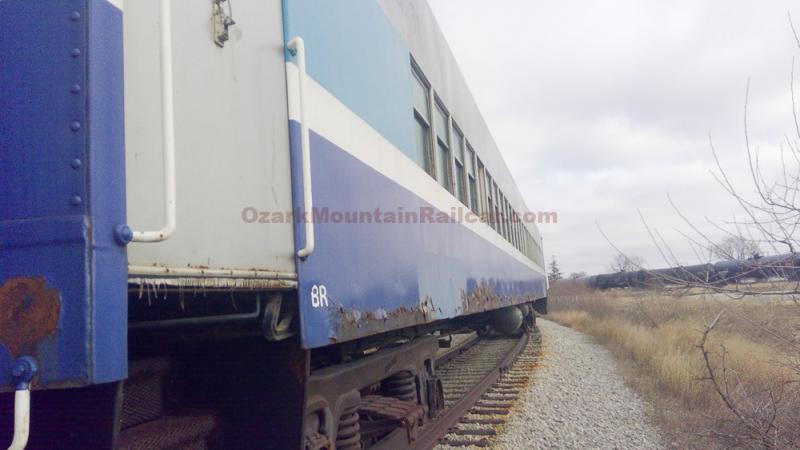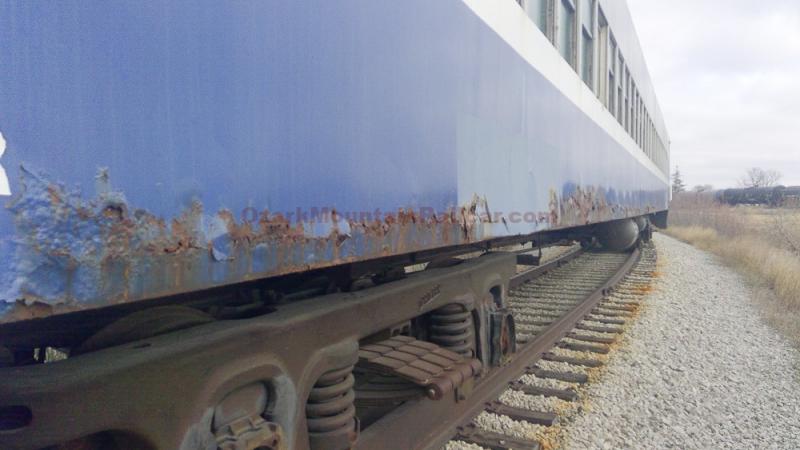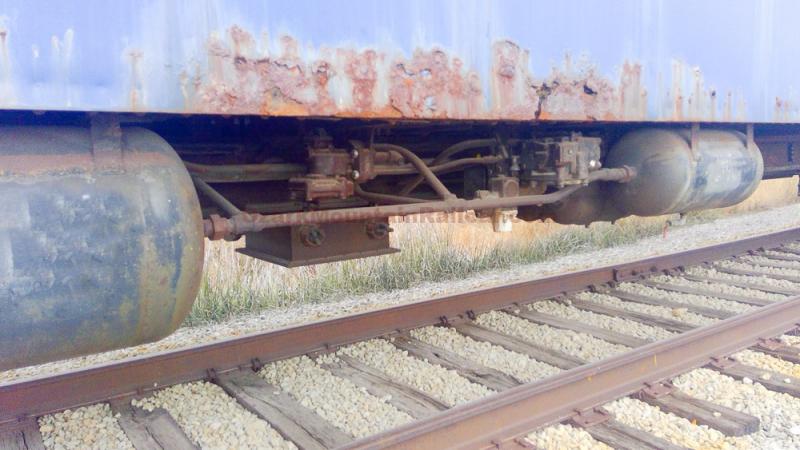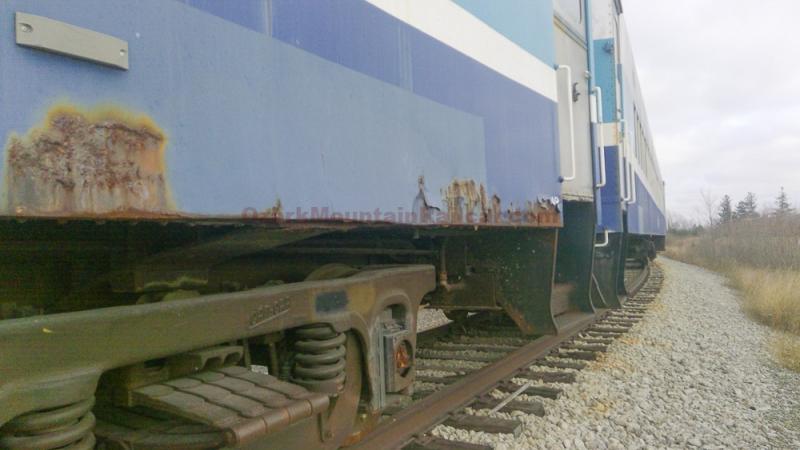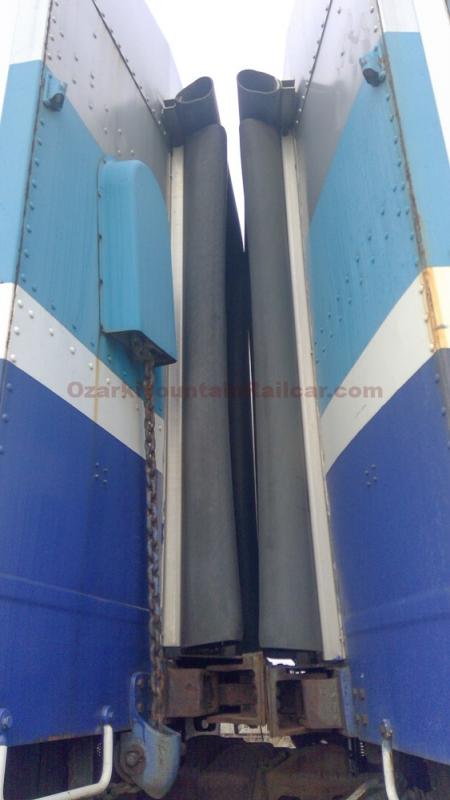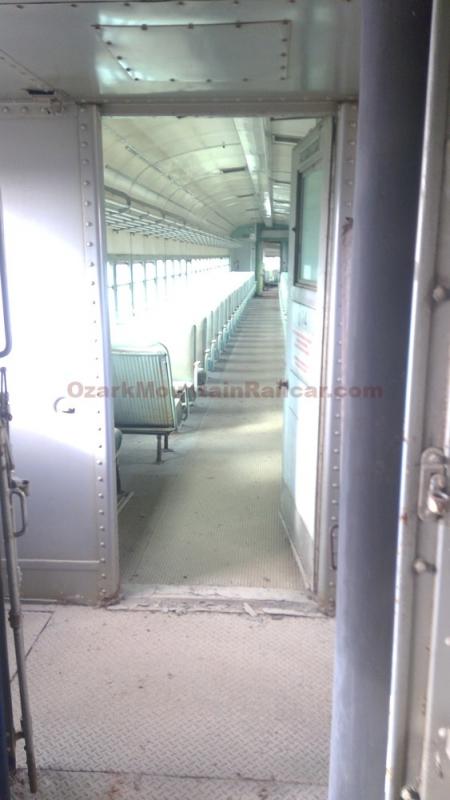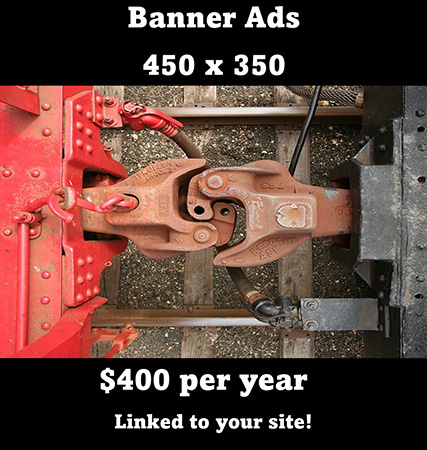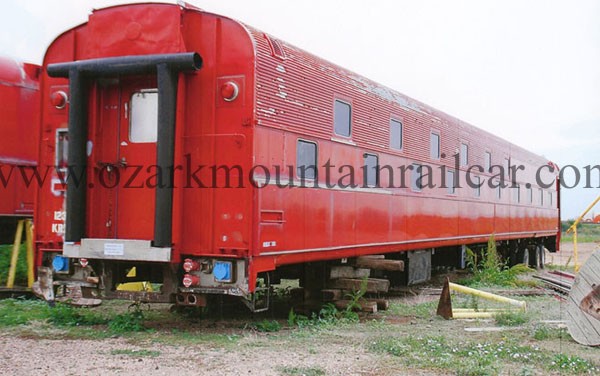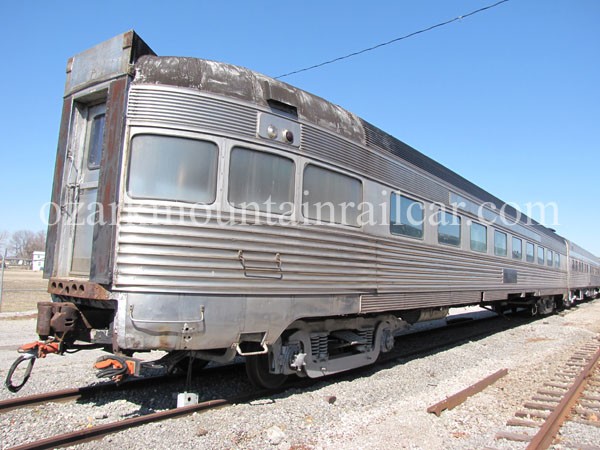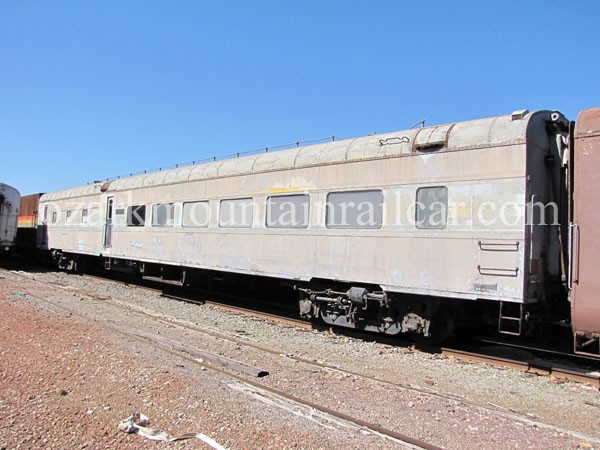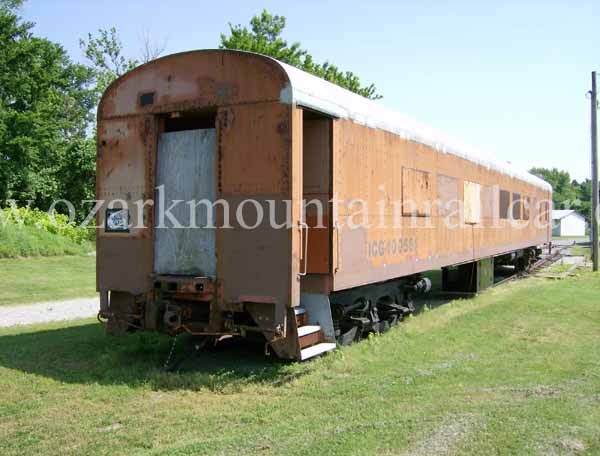Built in 1953 by Canadian Car & Foundry for commuter service out of Montreal, Quebec Canada. Originally built as steam heated D/C cars, they were fully rebuilt in 1990 and had Head End Power, updated lighting, electric heat and MU/communication lines installed. The cars were sold into private ownership and out of the 16 cars 8 have seen occasional excursion use. All cars are of steel construction with car fair to ok bodies. Several years ago copper thieves stole all the Head End Power cables under and between the cars, but the electrical system from the under car junction box to the in car electrical locker are intact. The cars do have open windows but they are lexan and most have fogged over but the open window frames cab be reused, they just need new glazing. Some of the mechanical details include: E couplers, Head End Power (cables have been cut) MU/Communication lines, built by Canadian Car & Foundry, rebuilt in 1990, tare weight 104,700, electric floor heat, open windows (need new glazing) average seating capacity 109, length over coupler faces 83'10", width over side sheets 9' 11", no air conditioning, 26-C air brake valves, suspension 4 coil springs and two elliptical, wheels 36" curved plate MW-2W, 5x10 rotating end cap bearings, Miner A-5XB draft gear, rubber diaphragms, 480v Head End Power (under car cables have been cut), public address system, 120v fluorescent lighting , ISSH trucks, tread brake shoes, interiors need a good cleaning, all cars have vestibules at both ends, body mounted brake cylinders, main reservoir lines, fair to good wheels.
Seller can do a COT&S for approx. $3,000.00 per car. Price quoted is for air brake work only and does not include any potentially additional repairs a car would need to make interchange with the connecting carrier.
Seller can deliver to: UP, BNSF, KCS, CN, CSX. Tarriffs to deliver to interchange range from $1,413.00 to $2,475.00 per car.
Q-How much does it cost to ship a passenger car by truck?
The costs involved with shipping a passenger car will vary a bit depending on the type of car and the equipment the service provider has and of course the distance it must travel. Normally a passenger car will weigh between 60-85 ton, will be approx. 85' long, ten feet wide and approx. 13-15' high sitting on it's trucks (wheel assemblies). The safest method of shipping will be to lift the car off it's trucks and set one end of the car on the back of a semi truck and the other end of the car on a set of road dollies. So basically the car would be pulled down the highway like a trailer. The trucking company will need to make a second trip to pick up the trucks and deliver them to the site before the truck arrives with the car body. It is recommended that the car be set on a short piece of track since that is how the car structure was designed. You normally can find used railroad ties at landscaping companies and for rail we suggest contacting a local railroad museum, shortline railroad or scrap yard. On an average you can expect to spend a minimum of $10,000-$15,000+. The total price will depend on the trucking company and crane companies in the area. Shipping is the responsibility of the buyer and we are more than happy to discuss the project with any service provider so that fully understand the process.
How much does it cost to ship a passenger car by rail?
If a passenger car is capable of being shipped by rail, that does not mean that is the easiest or cheaper method of transport. If the final destination is off live rail then shipping by truck (see above paragraph) will be the best option. This way you know when it will show up and an in what condition it will be in. To ship a car by rail it will need to meet all mechanical and safety standards of the Federal Railroad Administration and the interchanging railroad. In most cases we can recommend a trusted independent inspector who can do an evaluation of the car for you and perform what work needs to be done. On average the car will need to have the air brakes recertified (approx. $5,000-$8,000). And it will need to have UMLER Tags and reporting marks installed on the side of the car (approx. $250.00 - $500.00). If the car is ready to be shipped in freight service (like a box car in a train) you will need to open an account with all railroads involved in the move and get a tariff for moving a passenger on it's own wheels (we can recommend several trusted contractors who can make all the shipping arrangements for you). The railroads charge between $5.00- $15.00 per mile, often the railroads don't go directly from point A to point B so you will need to pay the total amount of mileage the car will travel to get to the final destination. It is recommend that you have the car insured before shipment ( we can recommend several carriers who specialize insuring railroad equipment).
How much does it cost to ship a car by railroad flat car?
Occasionally a passenger car can't be shipped by rail due to it's physical attributes or shipping by truck is not the best option. You can ship a car loaded on a flat car, it will need to be secured to the flat car per American Association of Railroads tie down specifications. The tariff often can be cheaper than moving a car on it's own wheels, but you will still need to pay crane costs at origin and destination and you will need to have an active siding for the car to be delivered to. Shipping by flatcar will start at approximately $10,000 and will be based on origin and destination crane cost and the rail tariff and any car rental costs.
